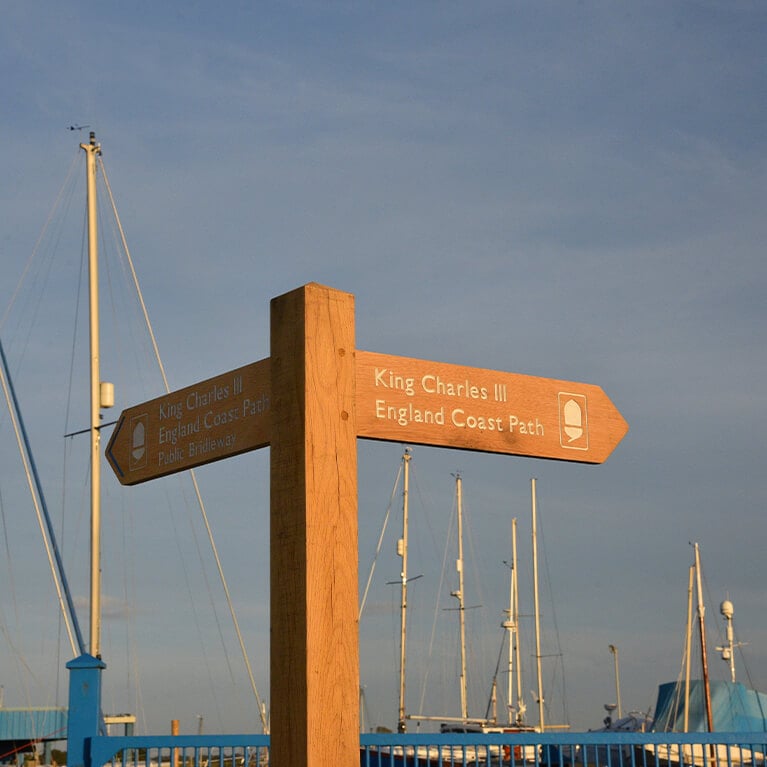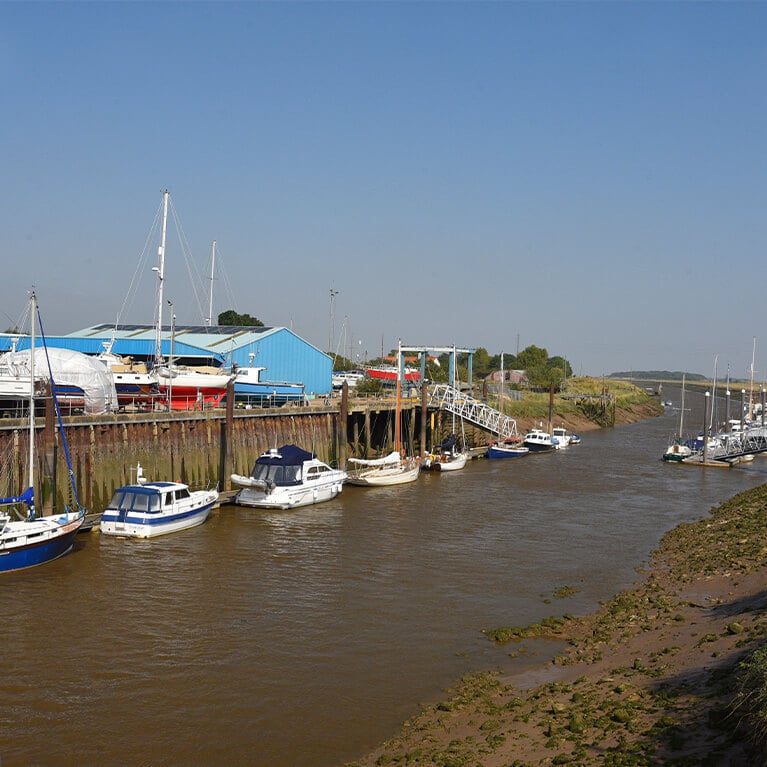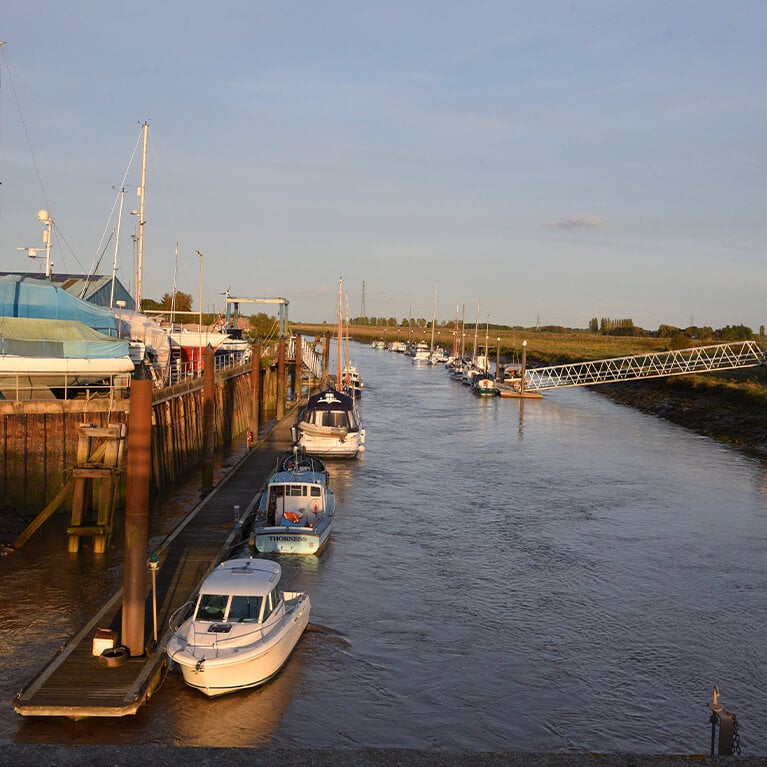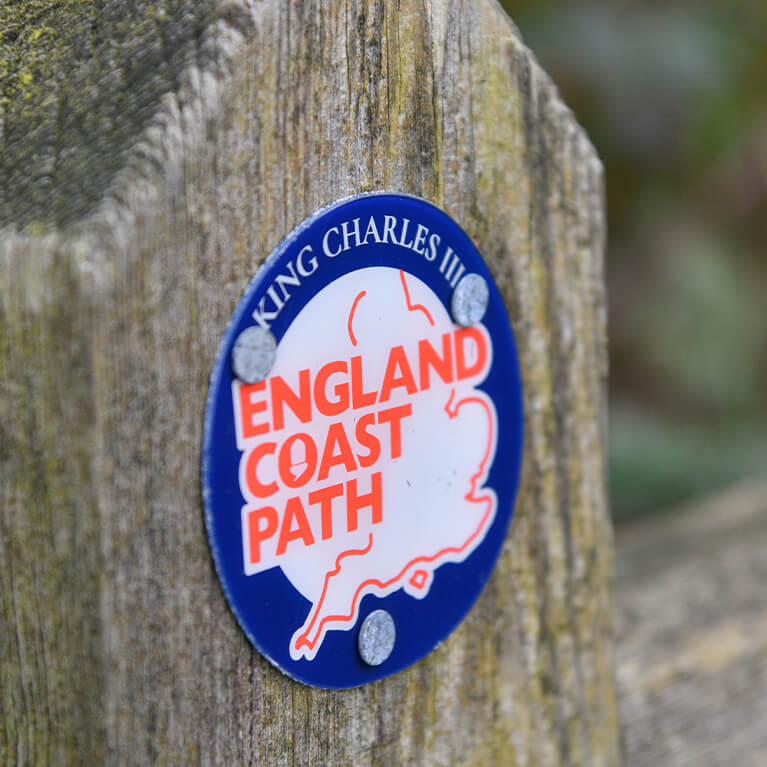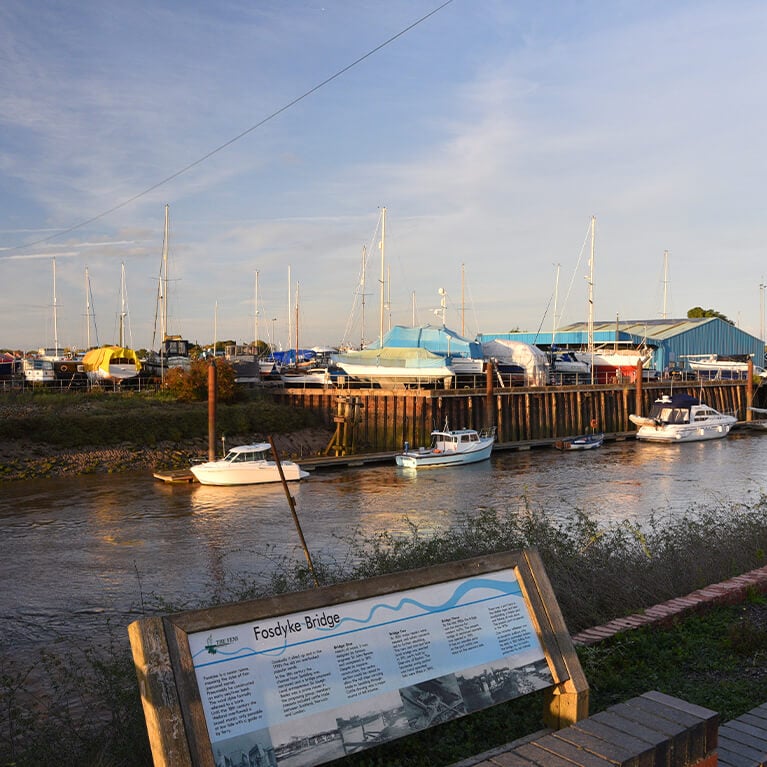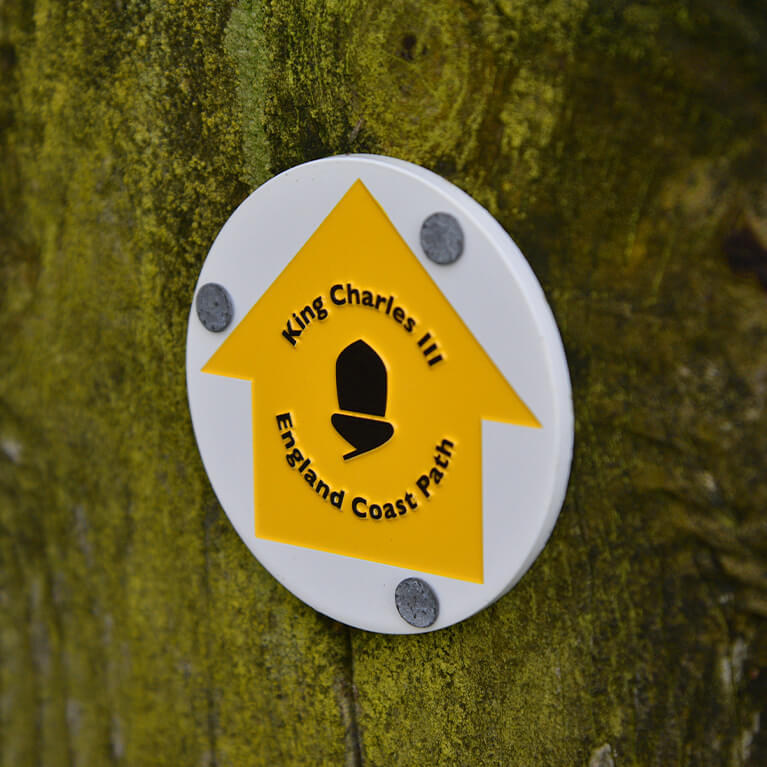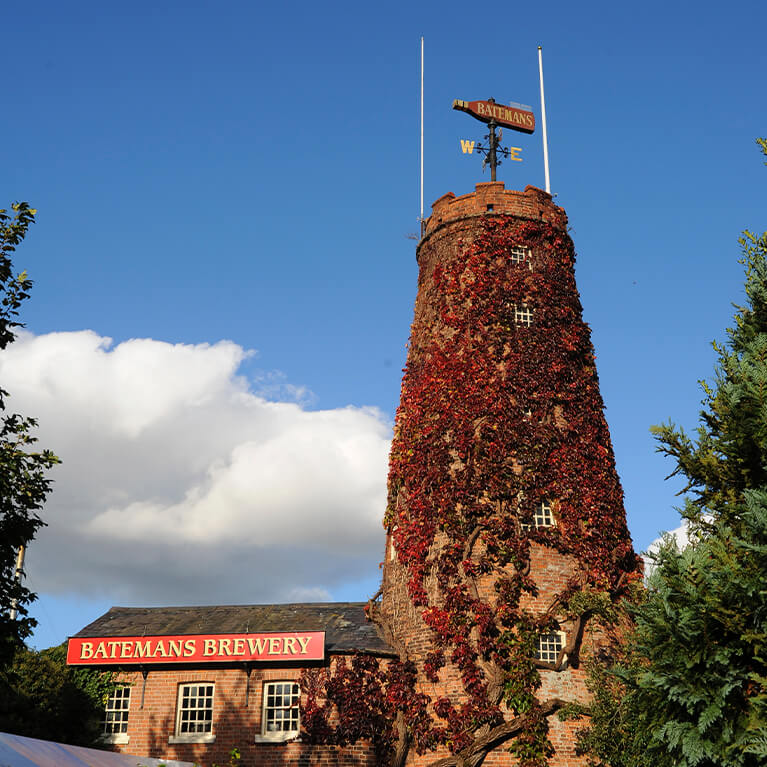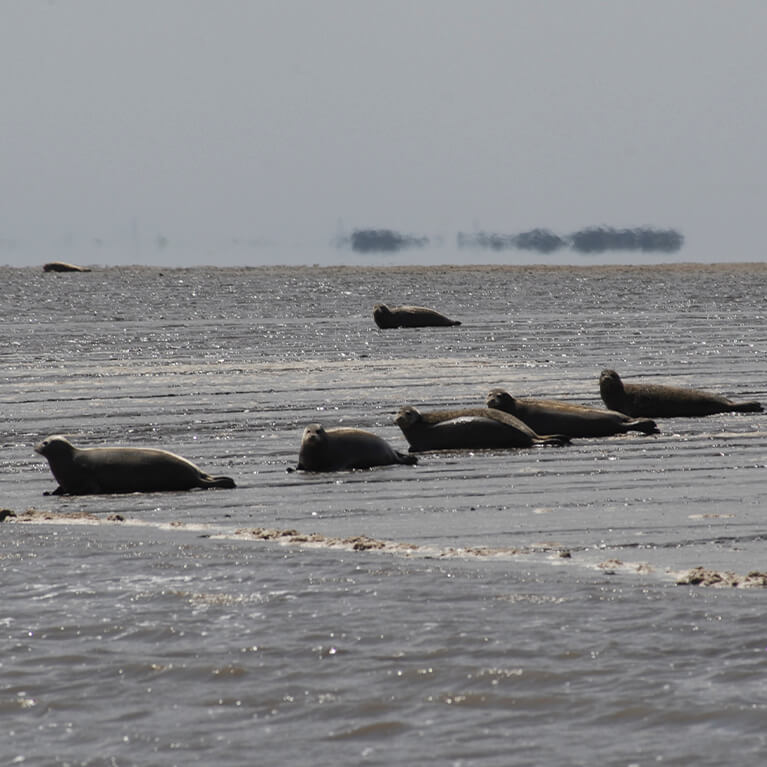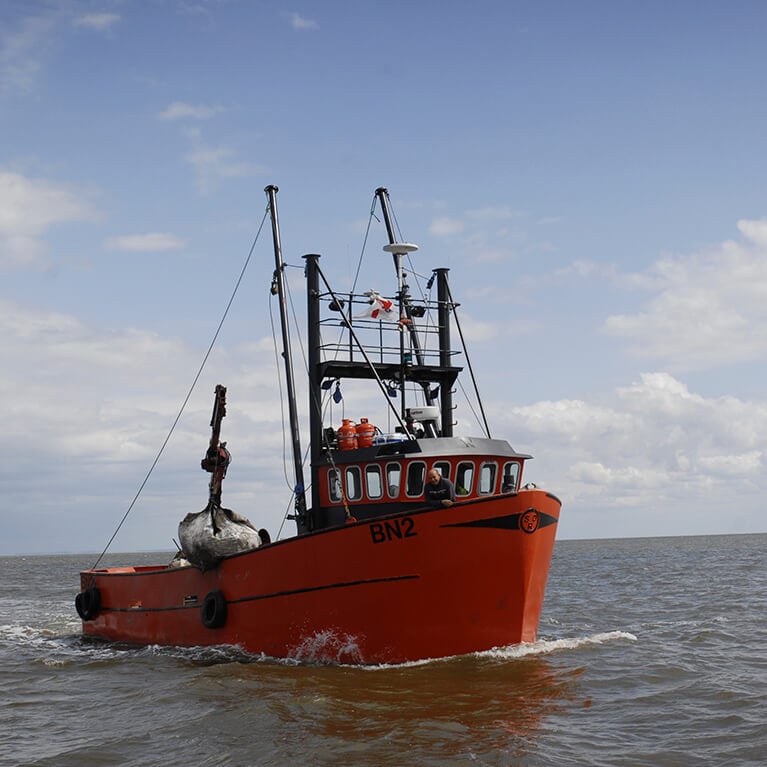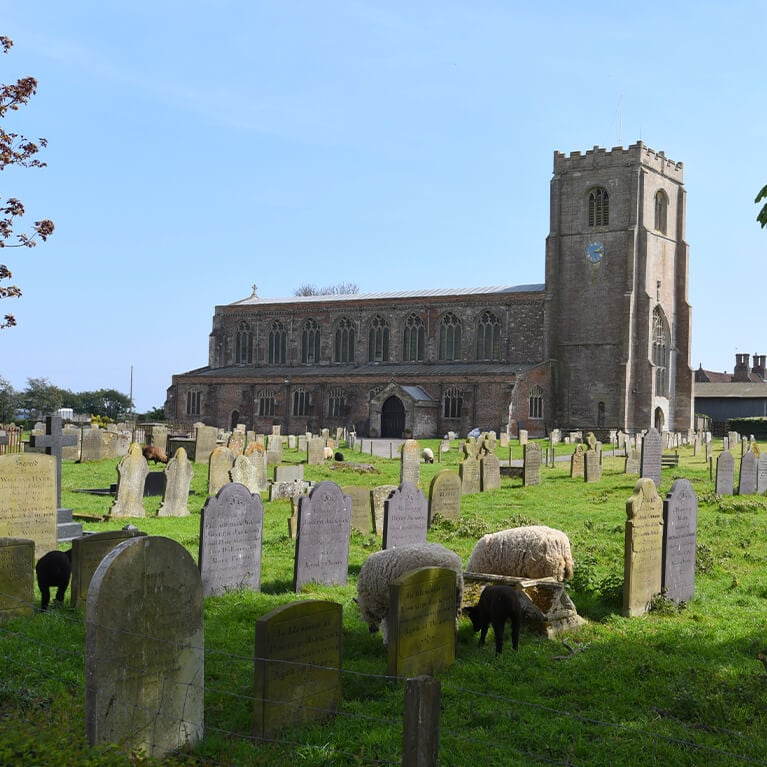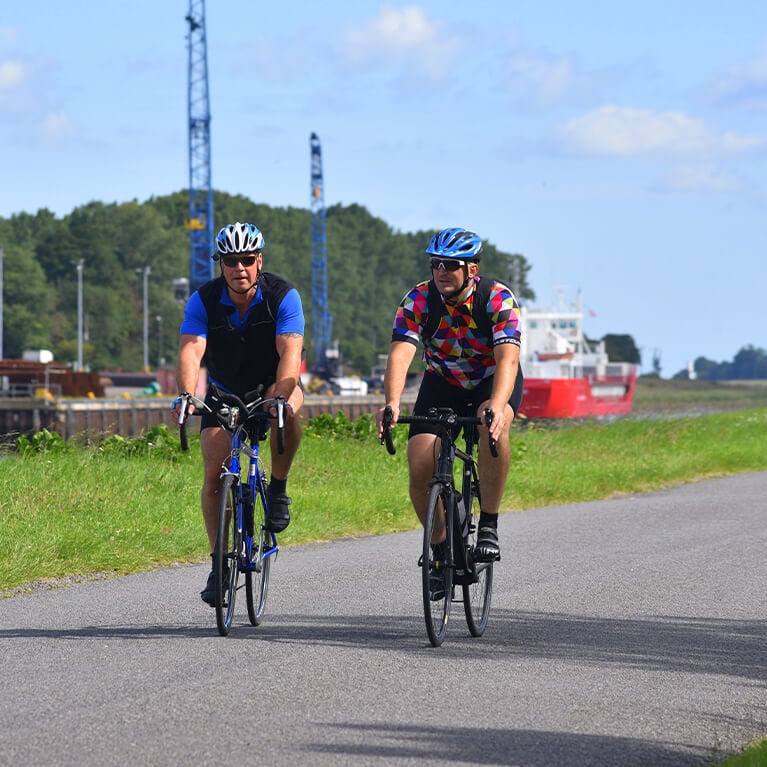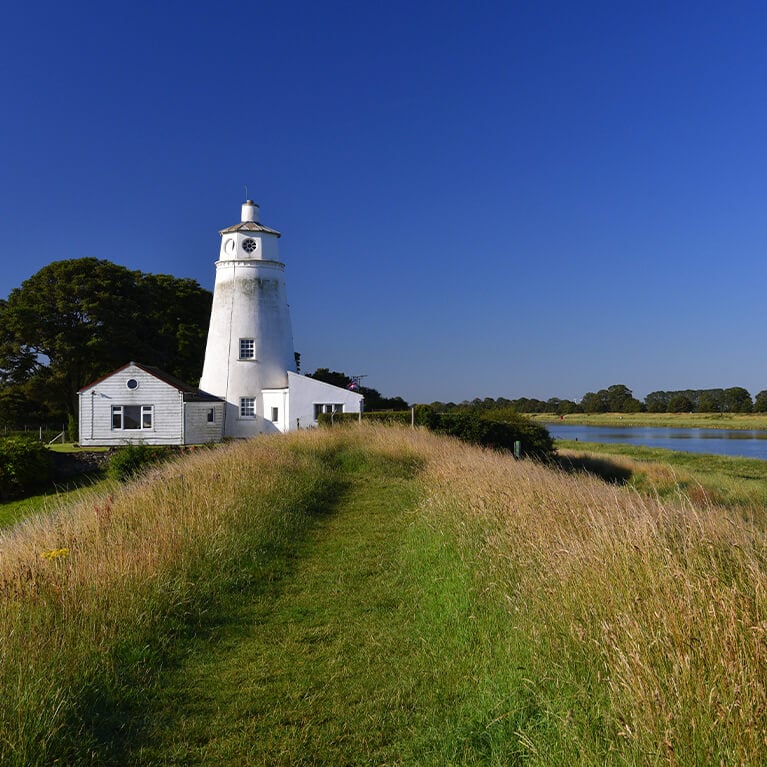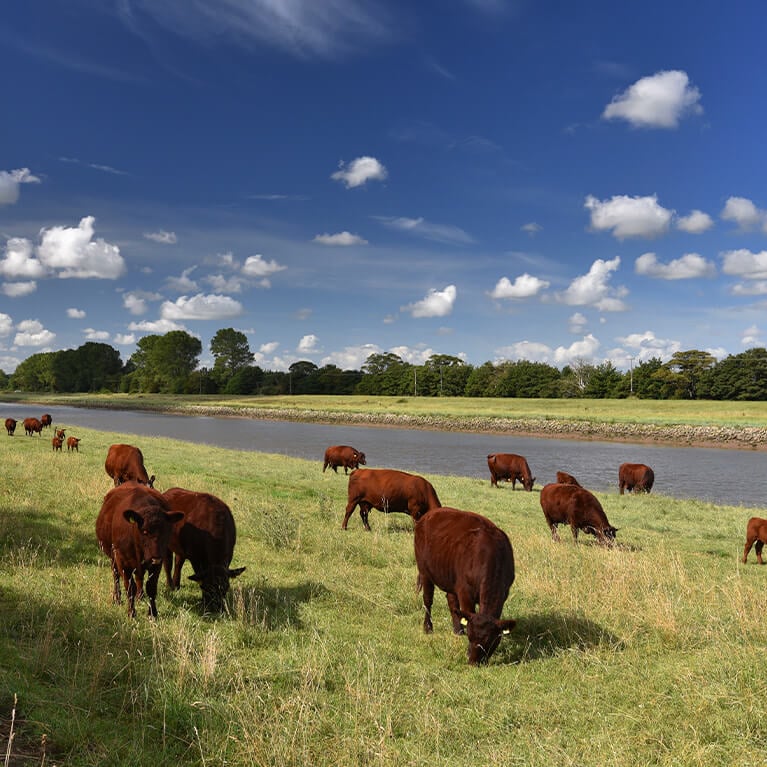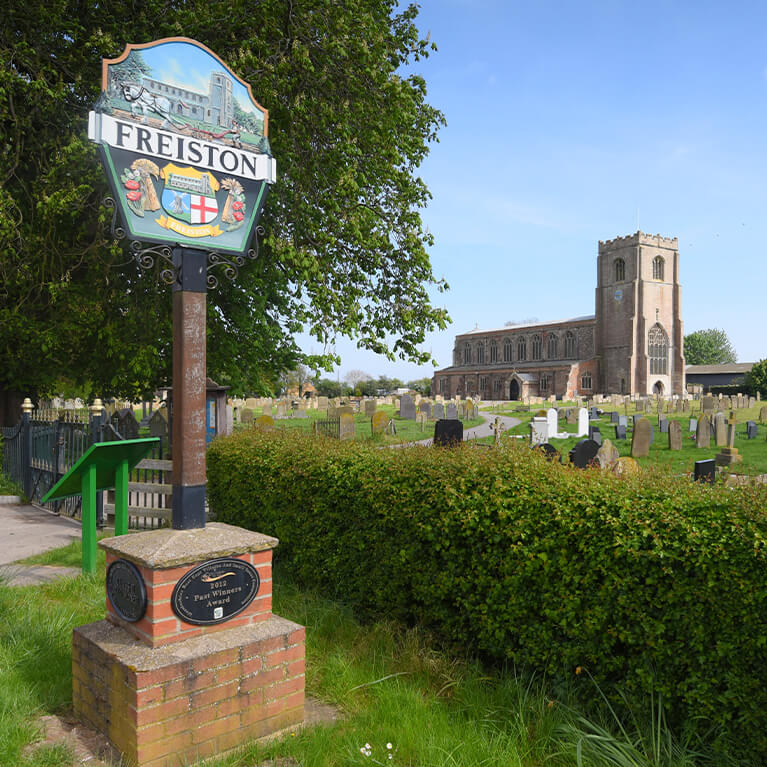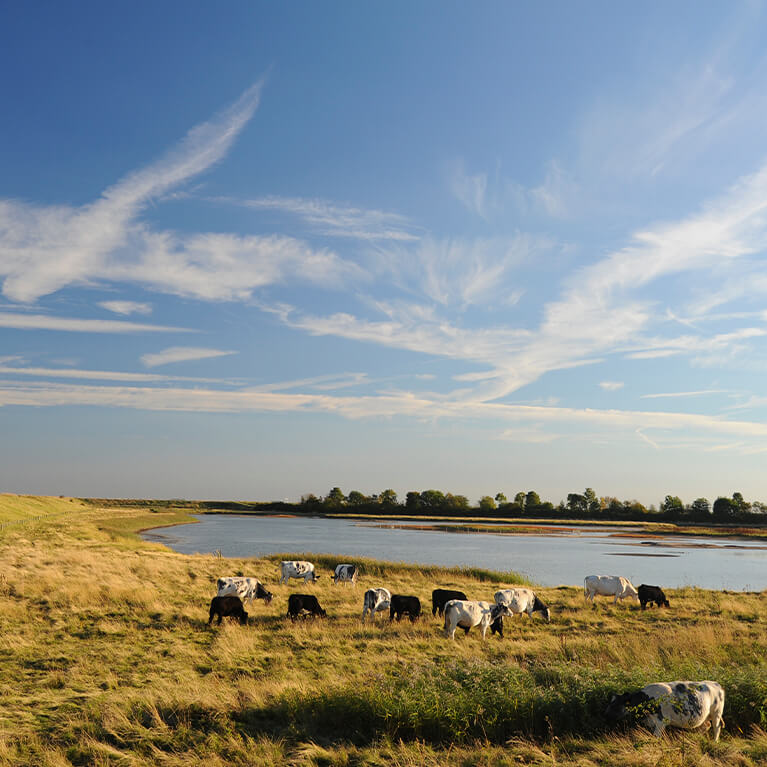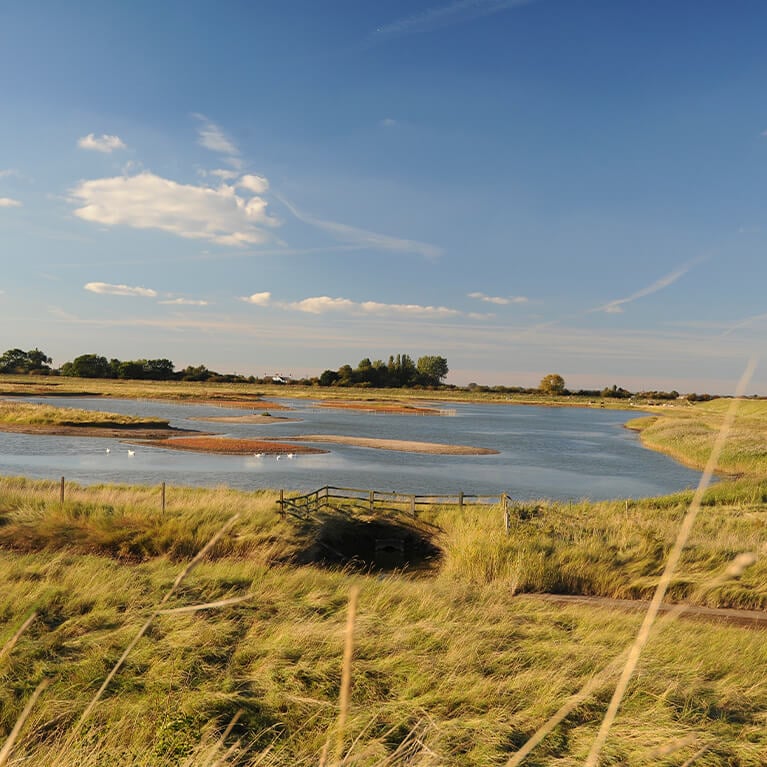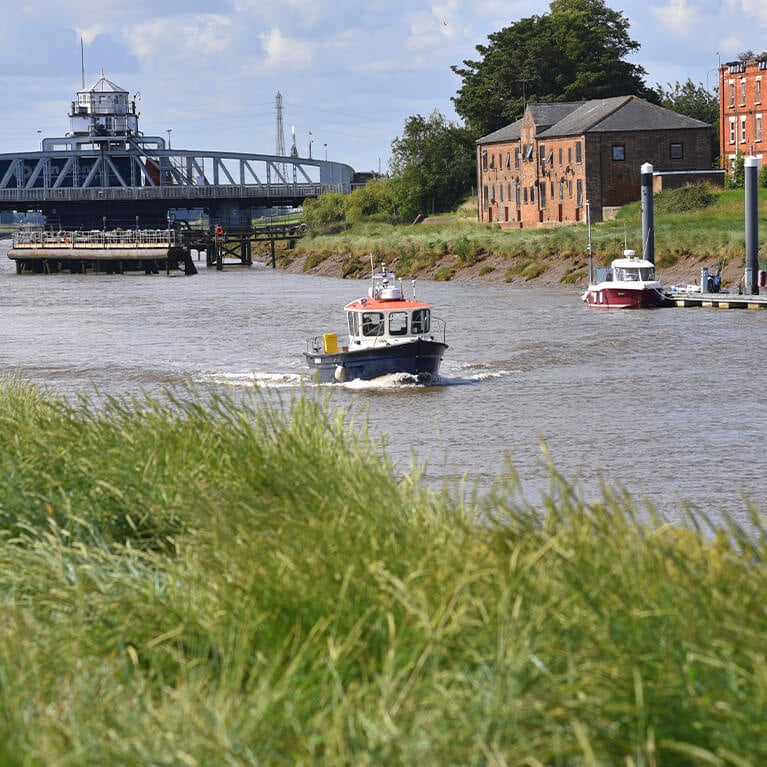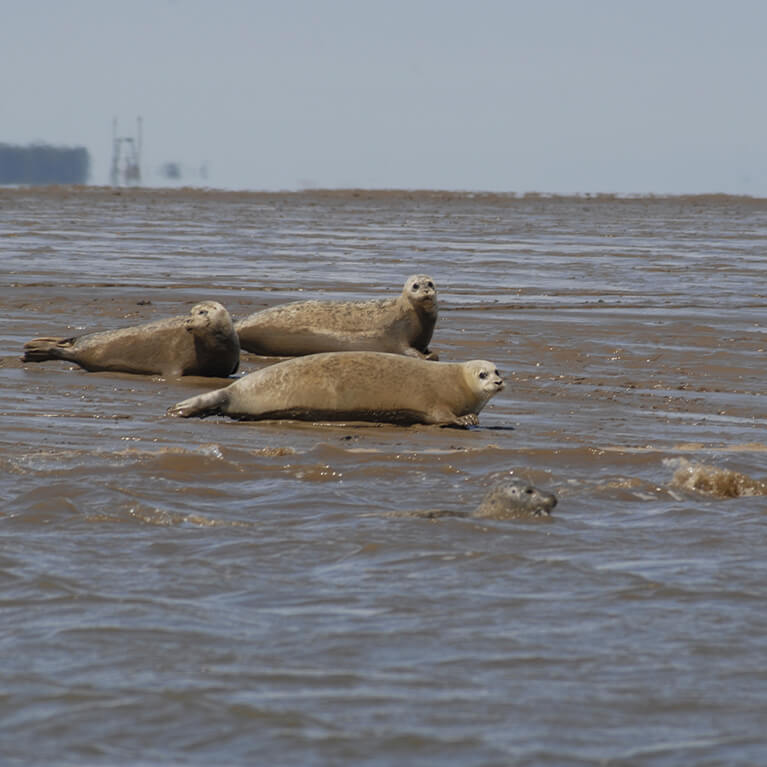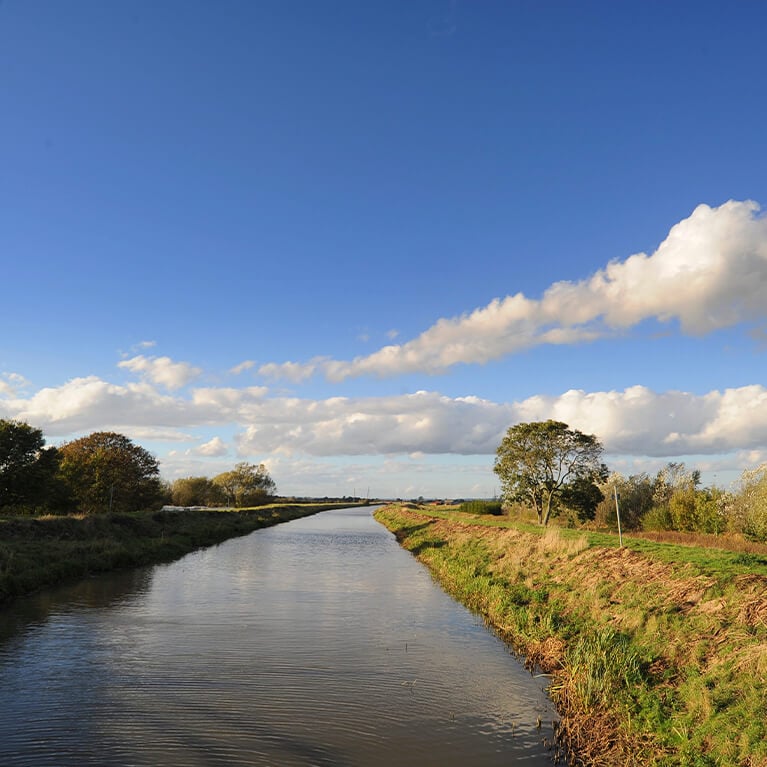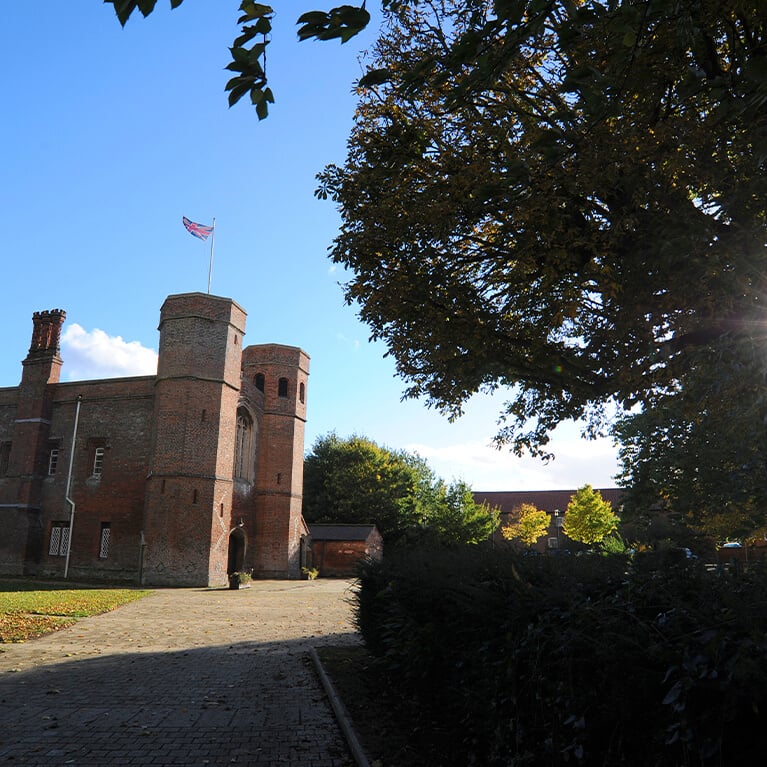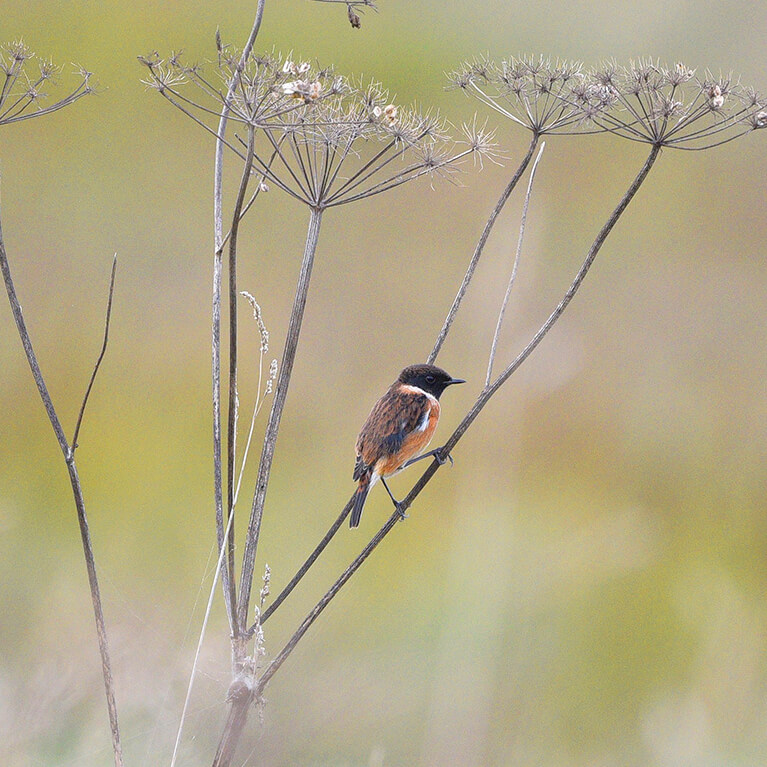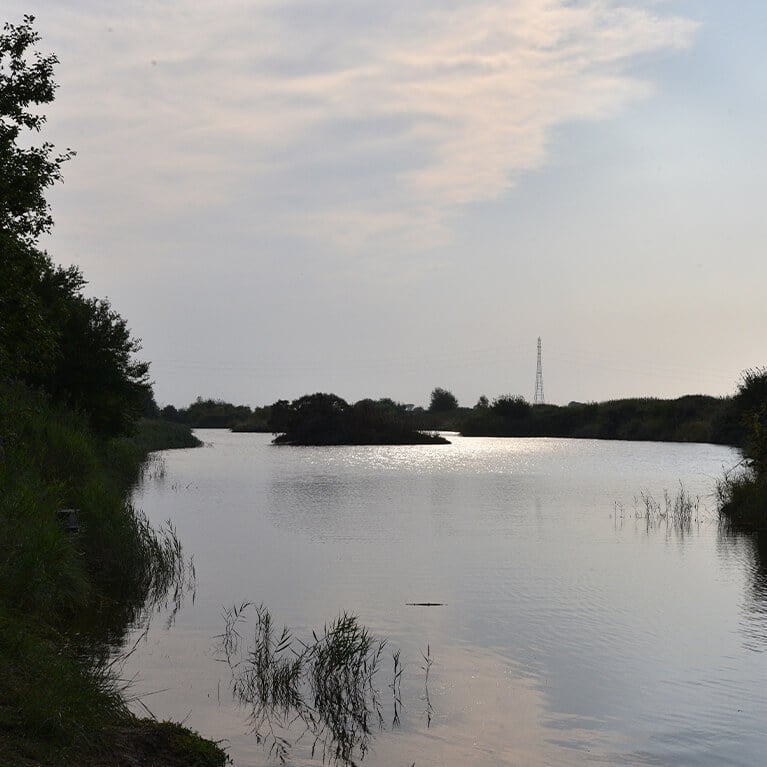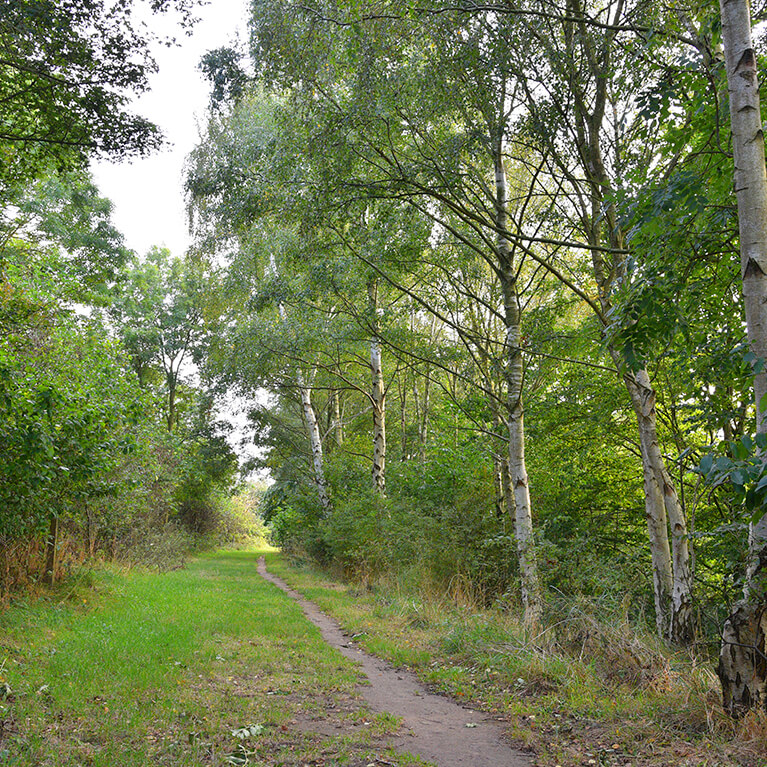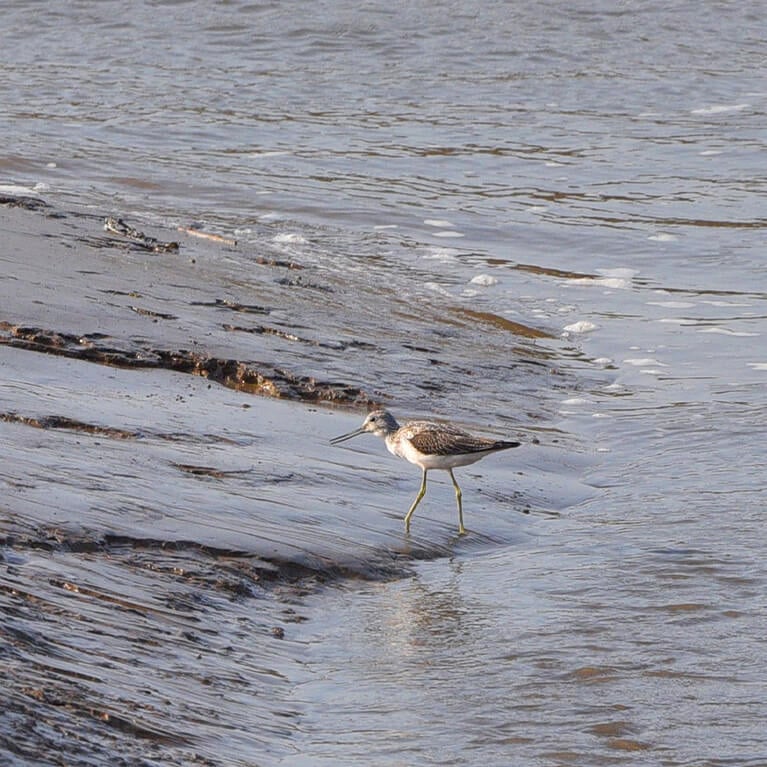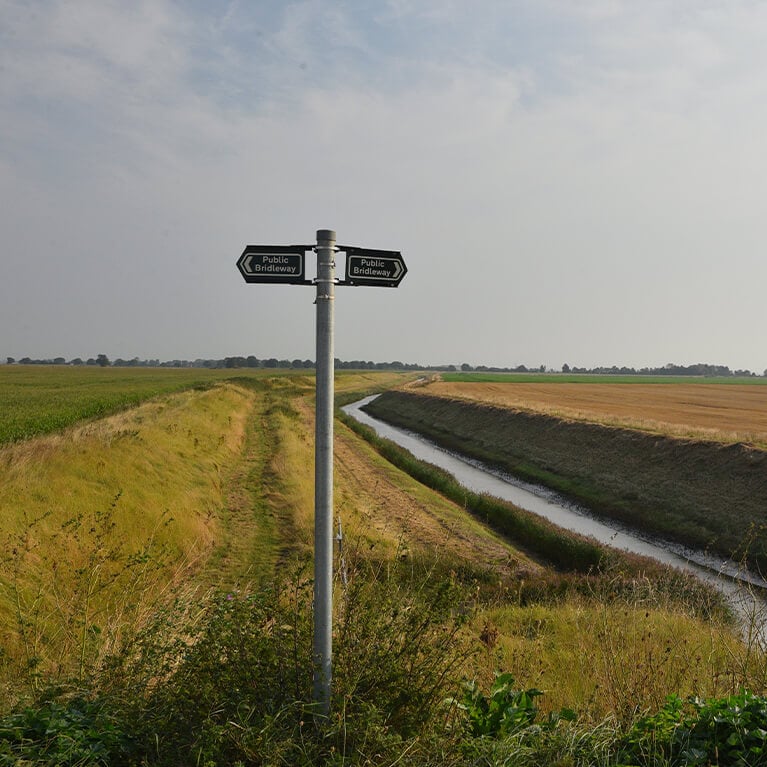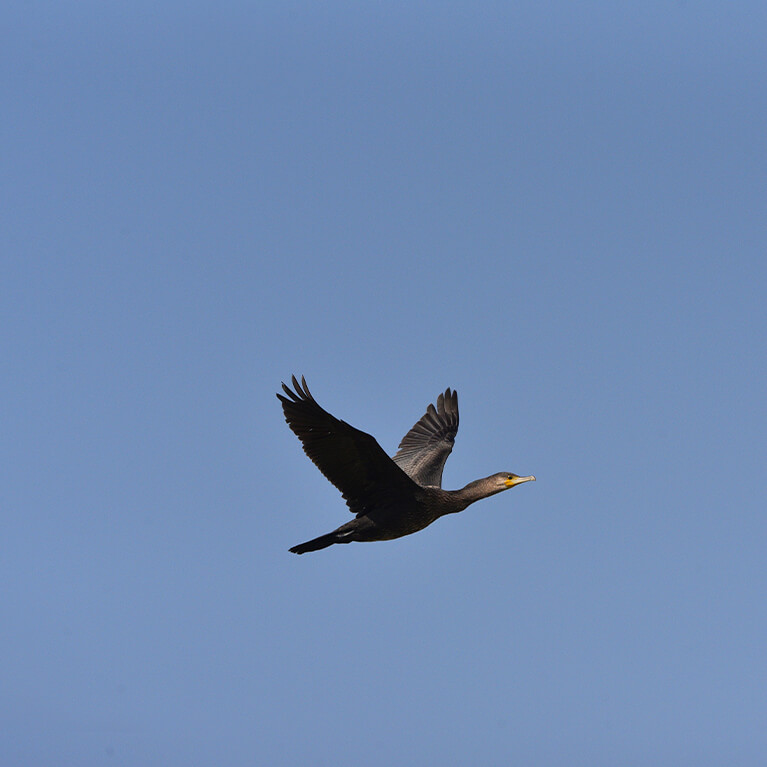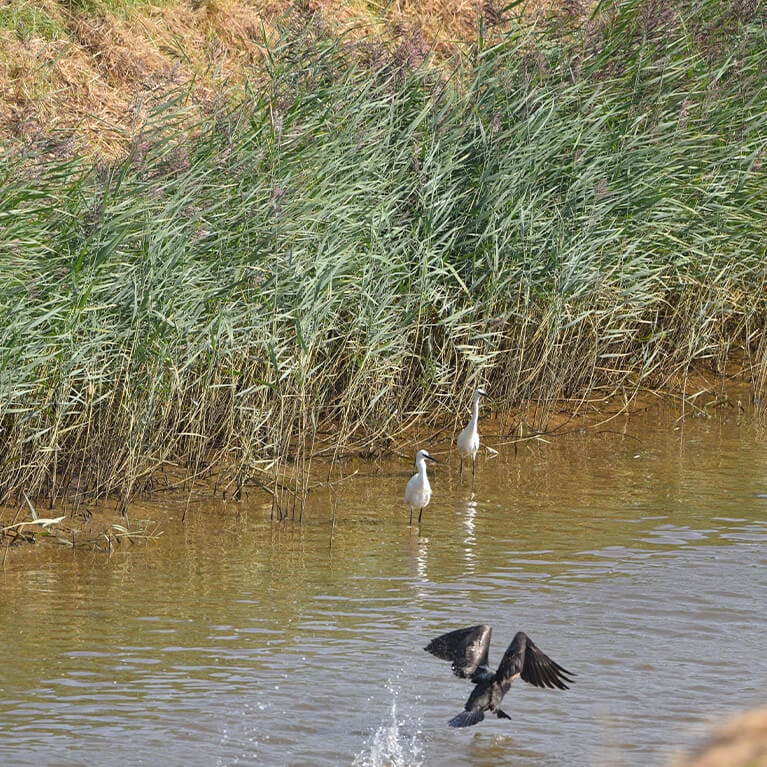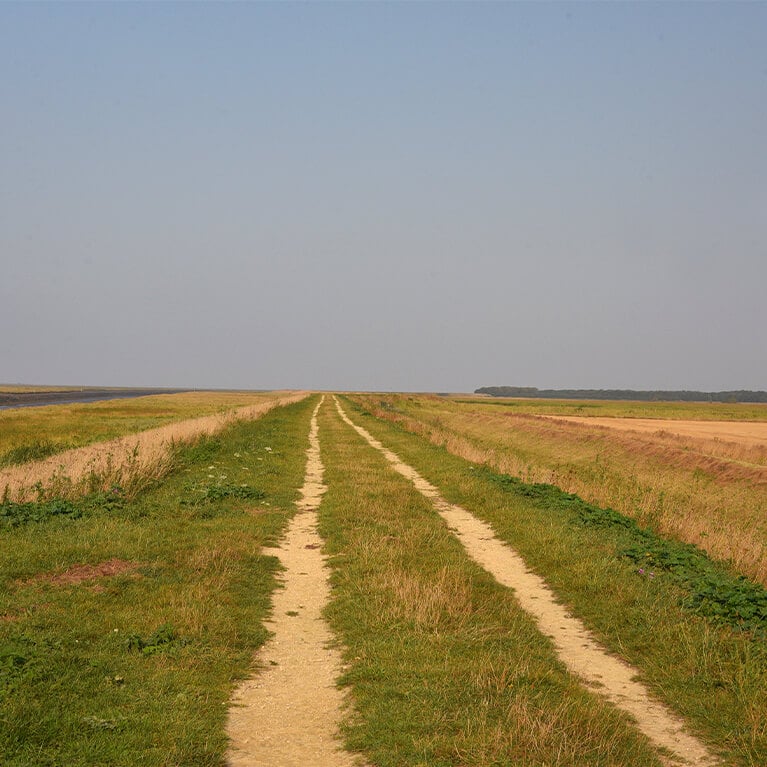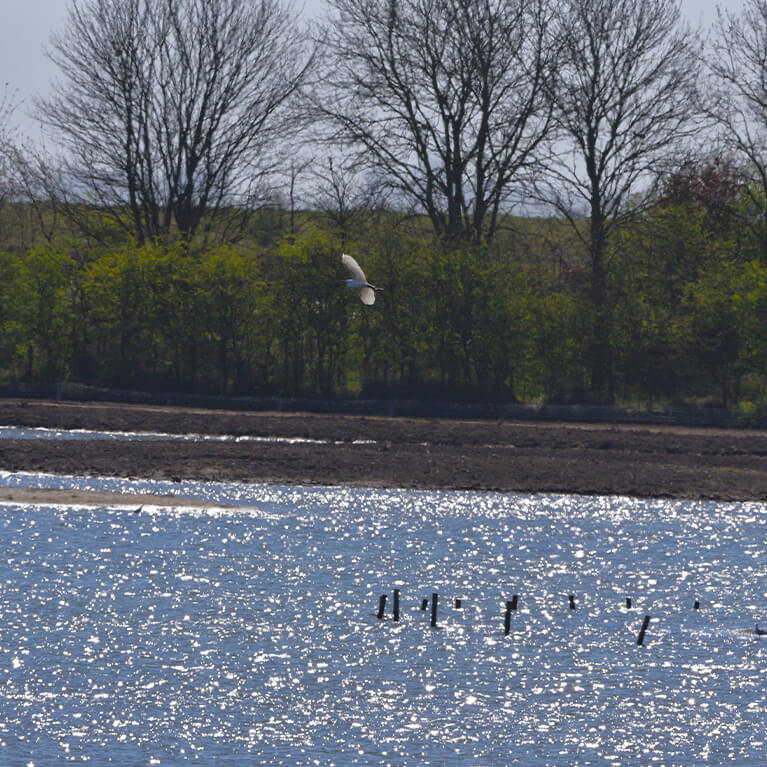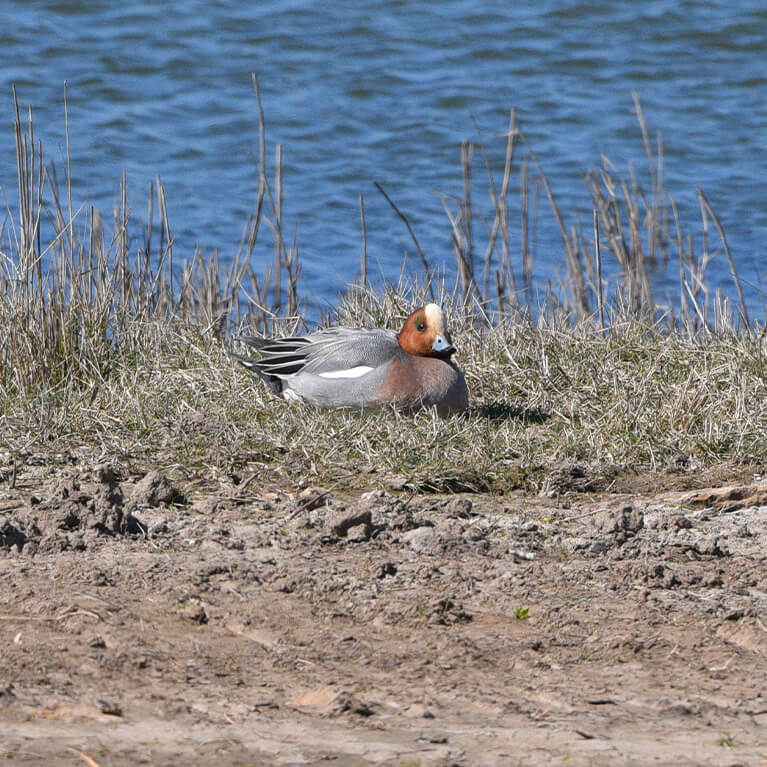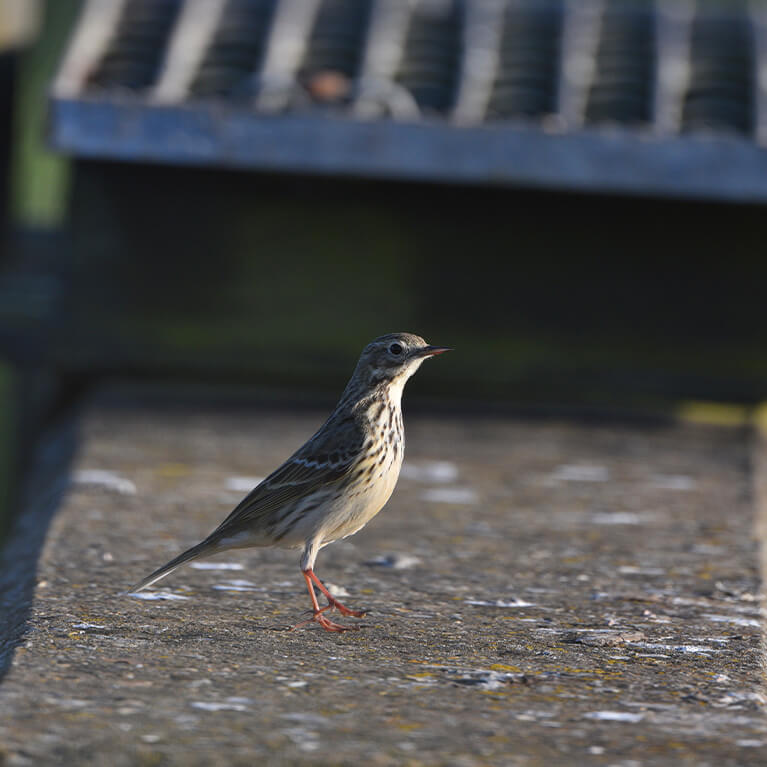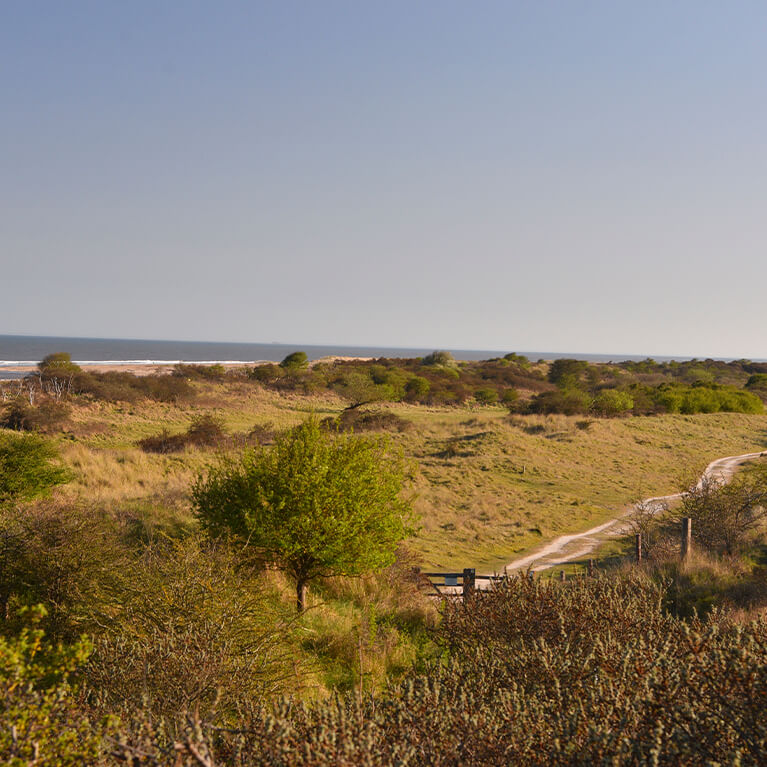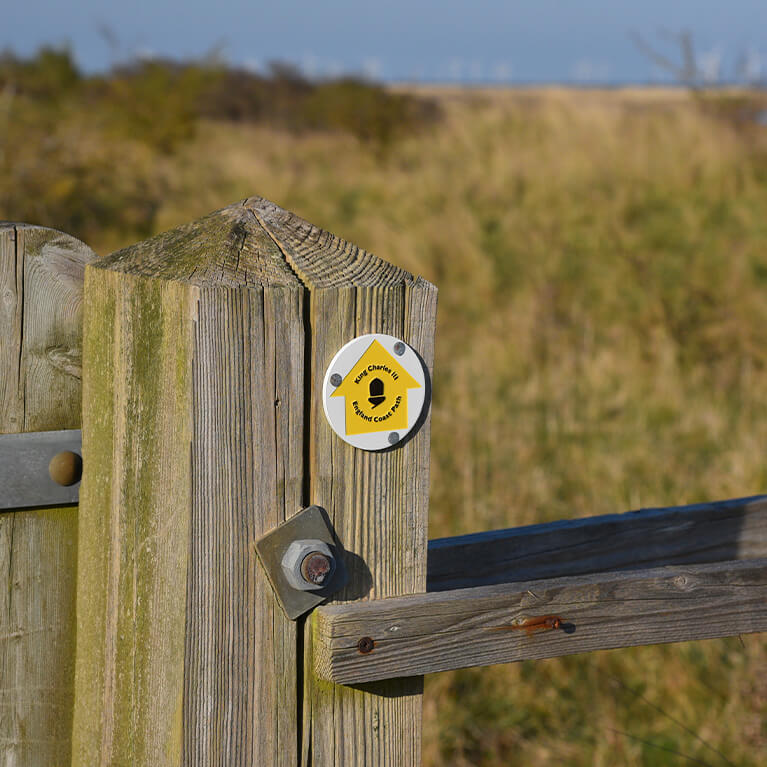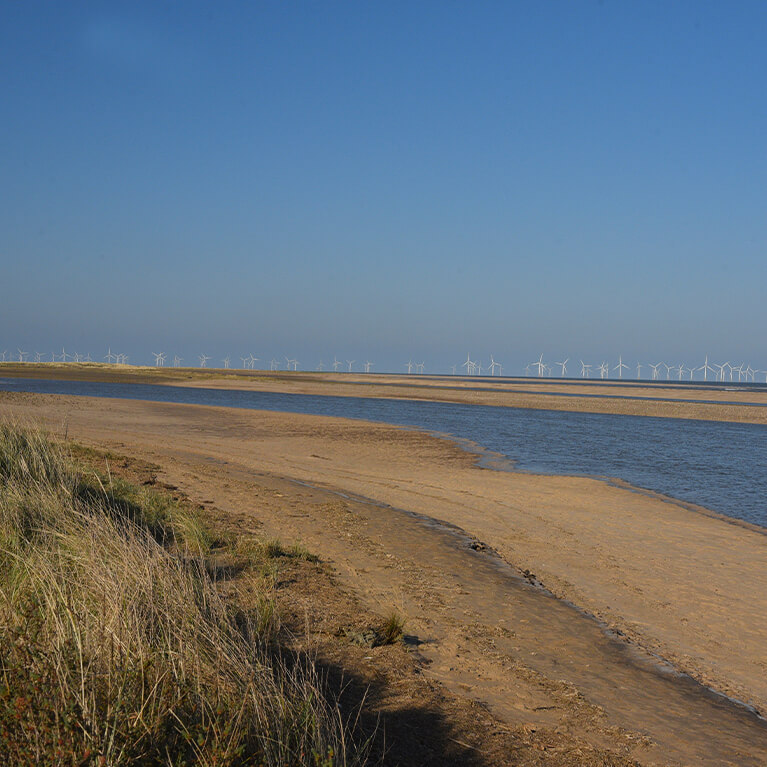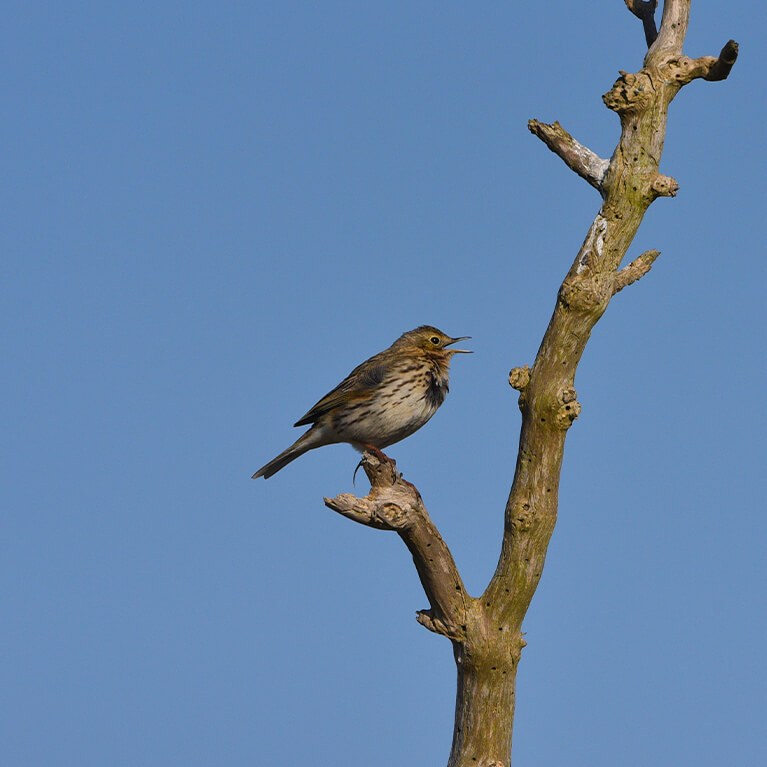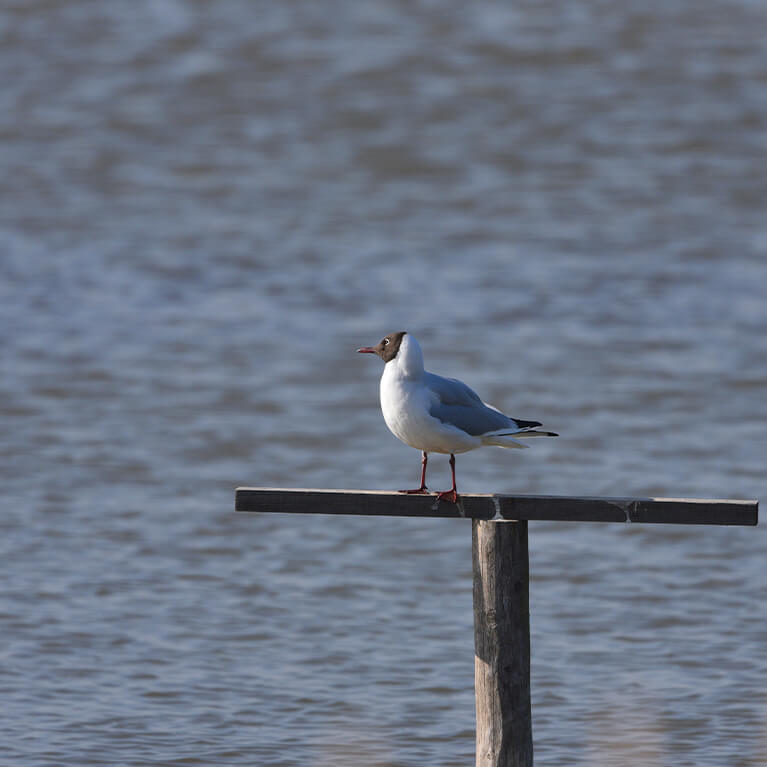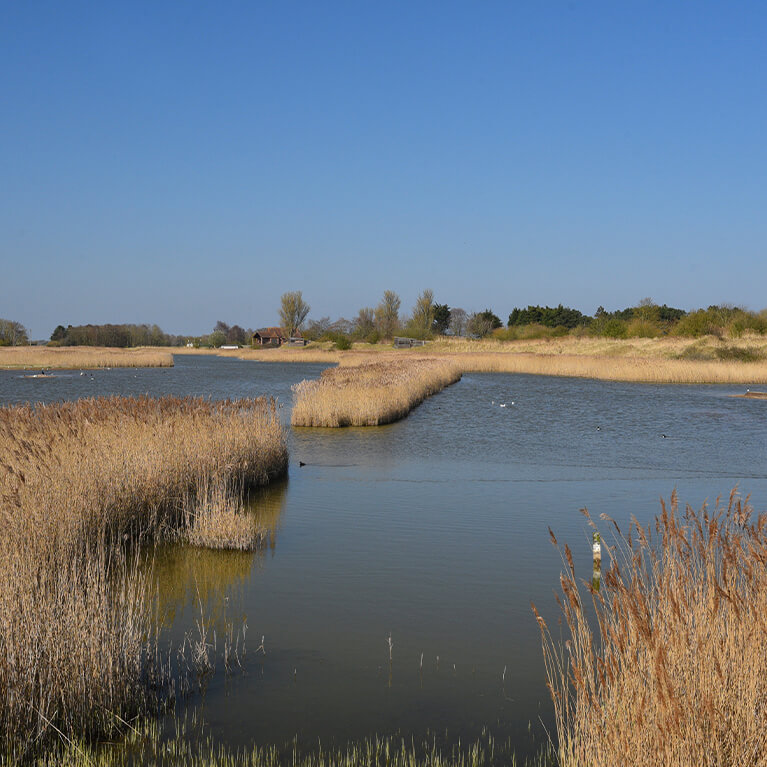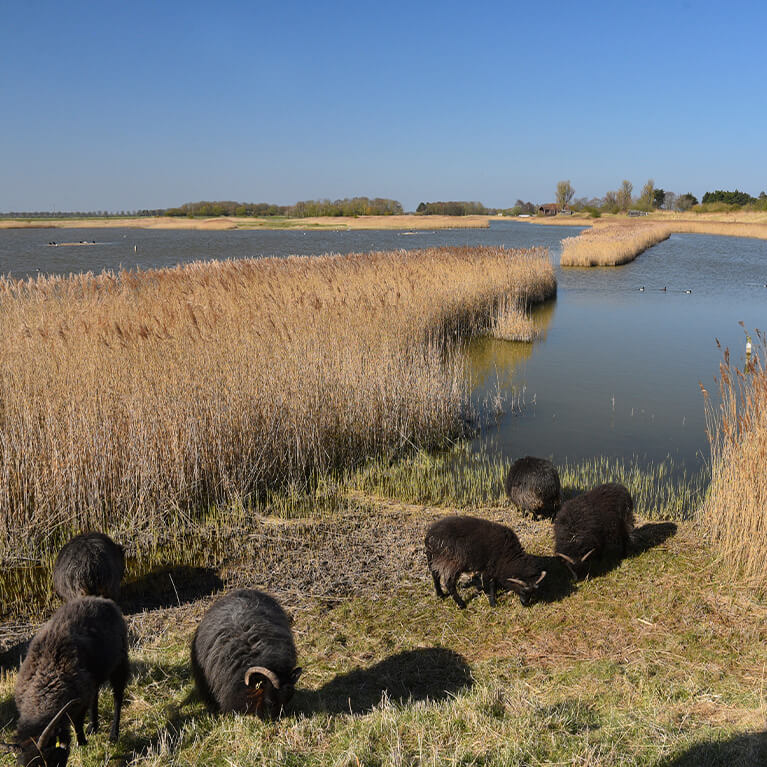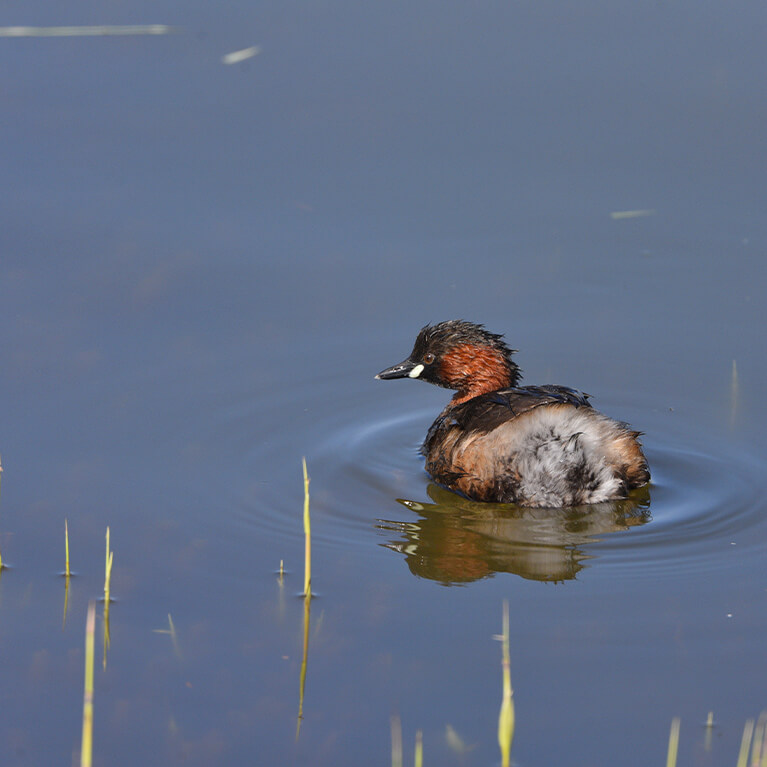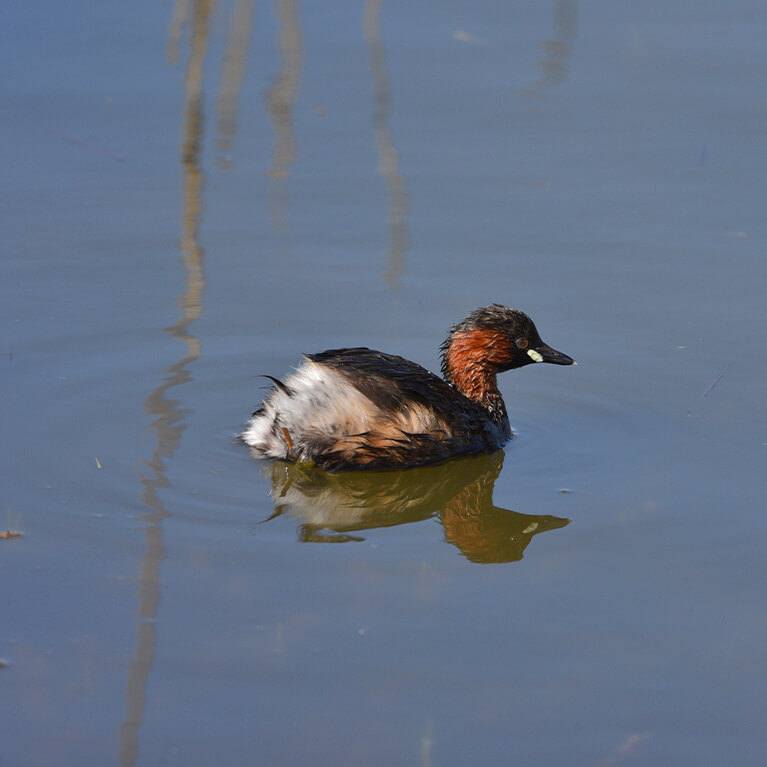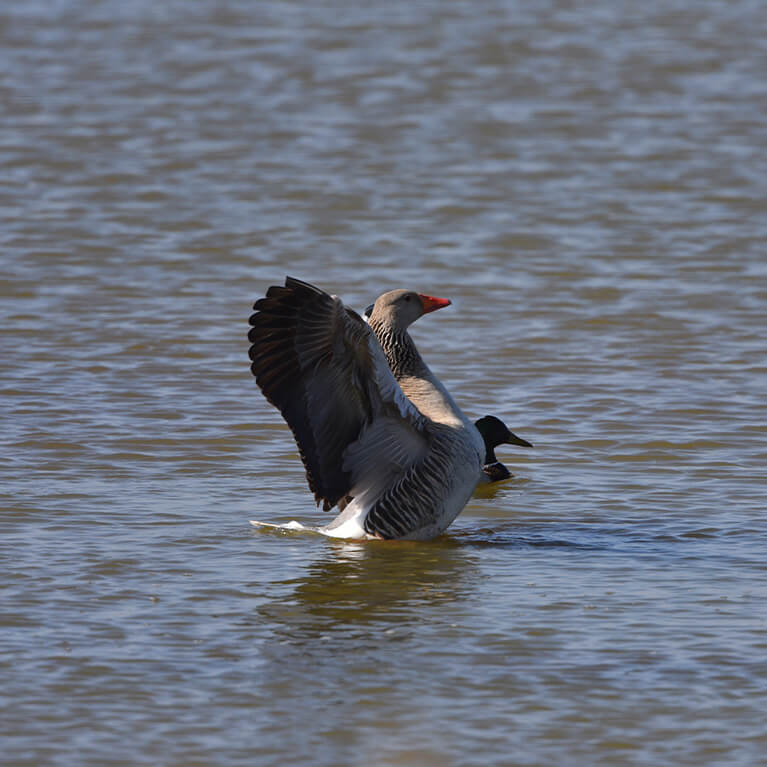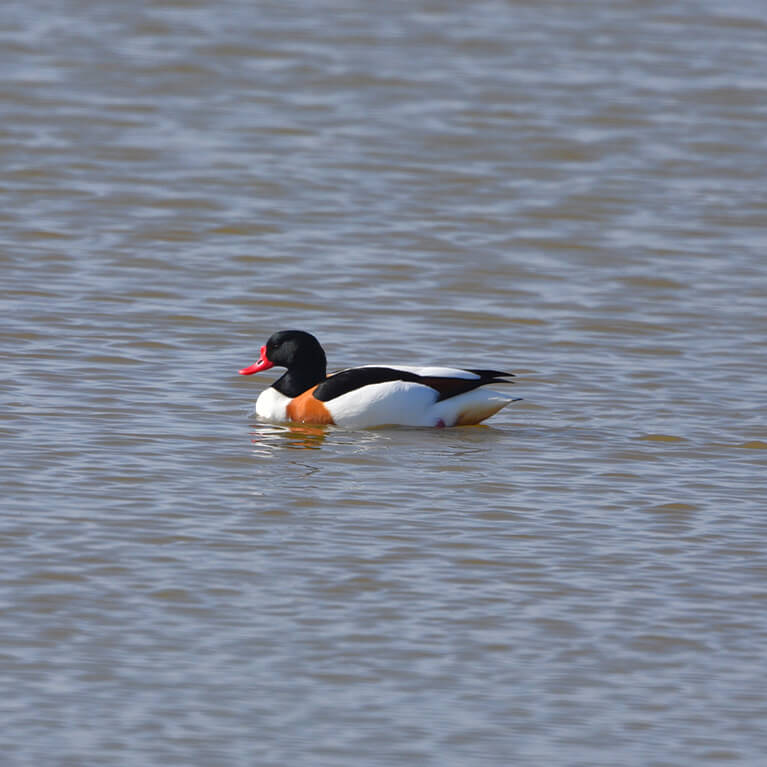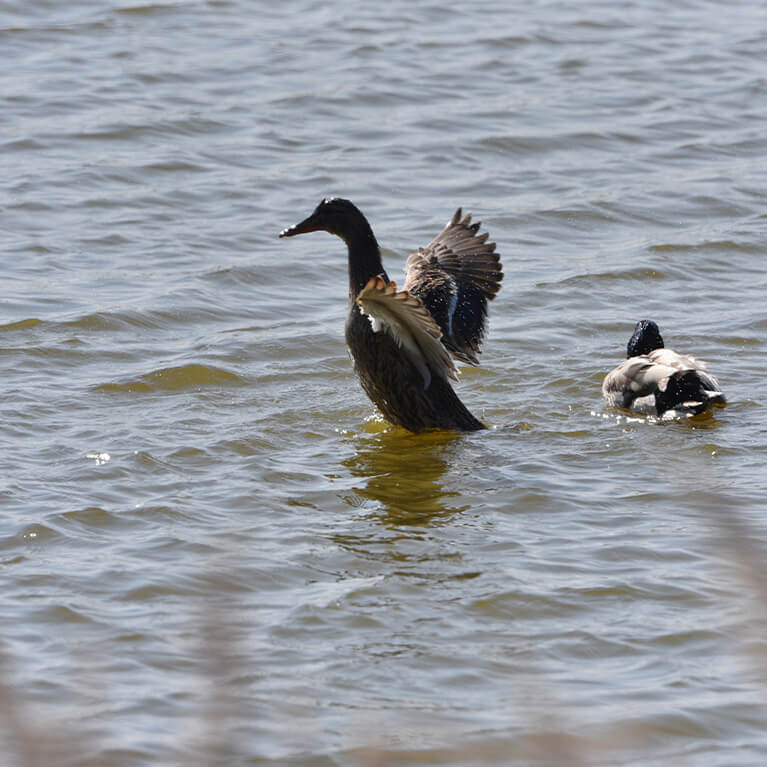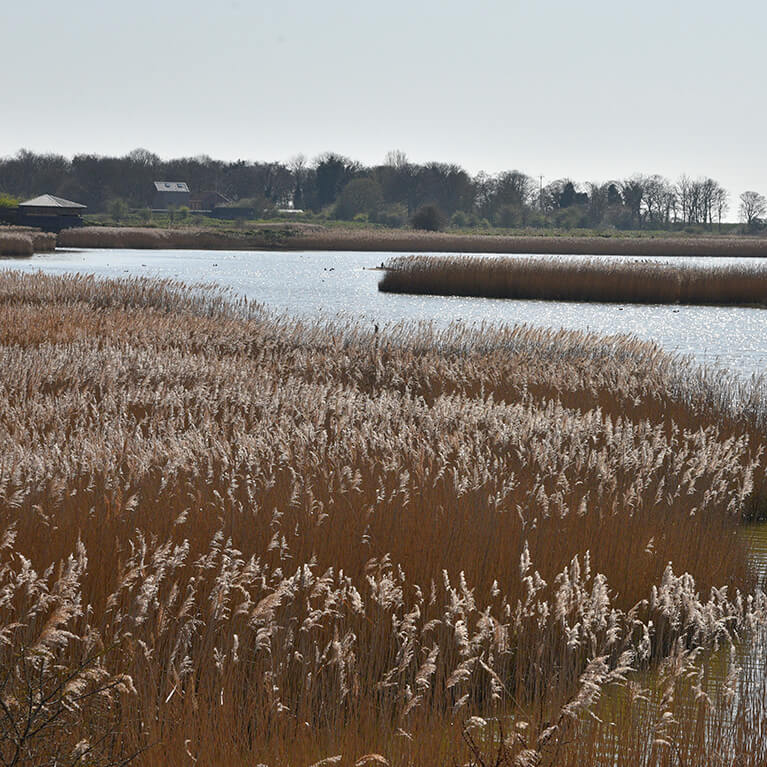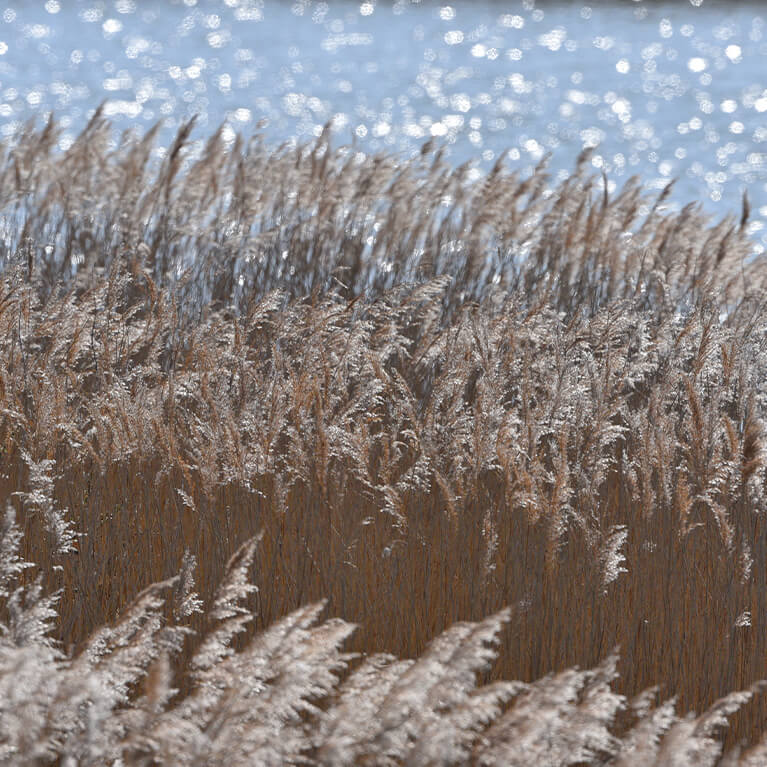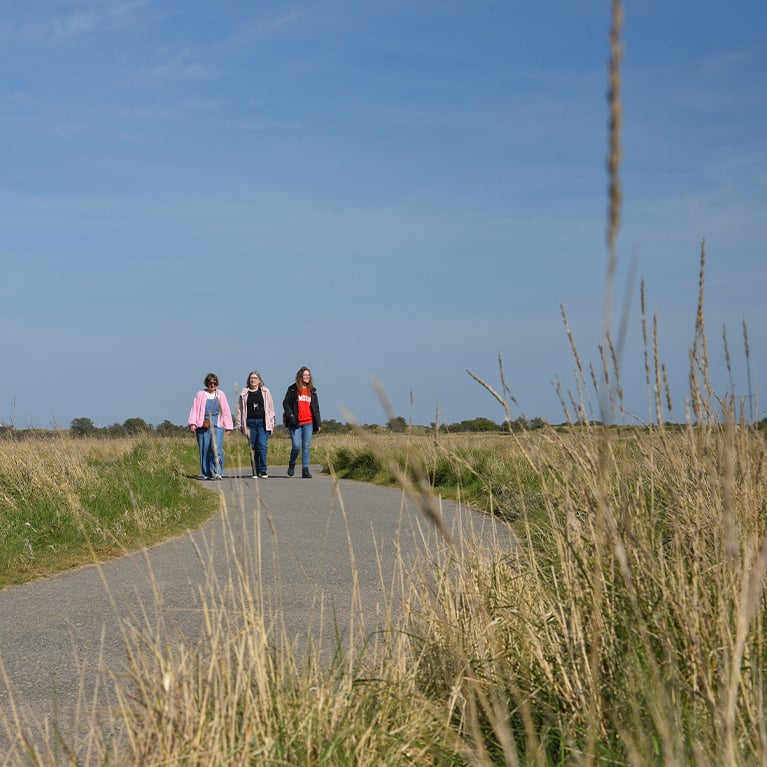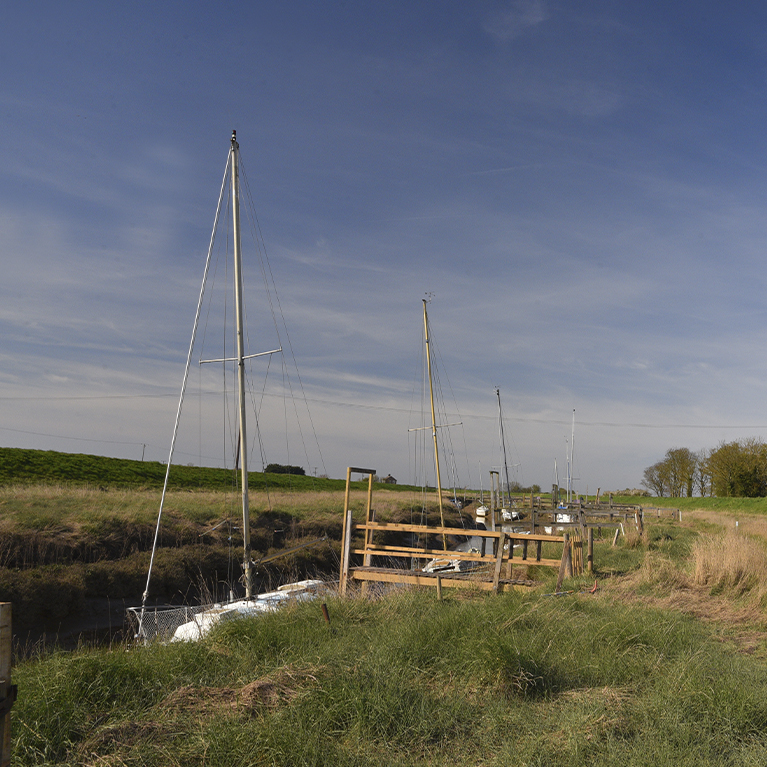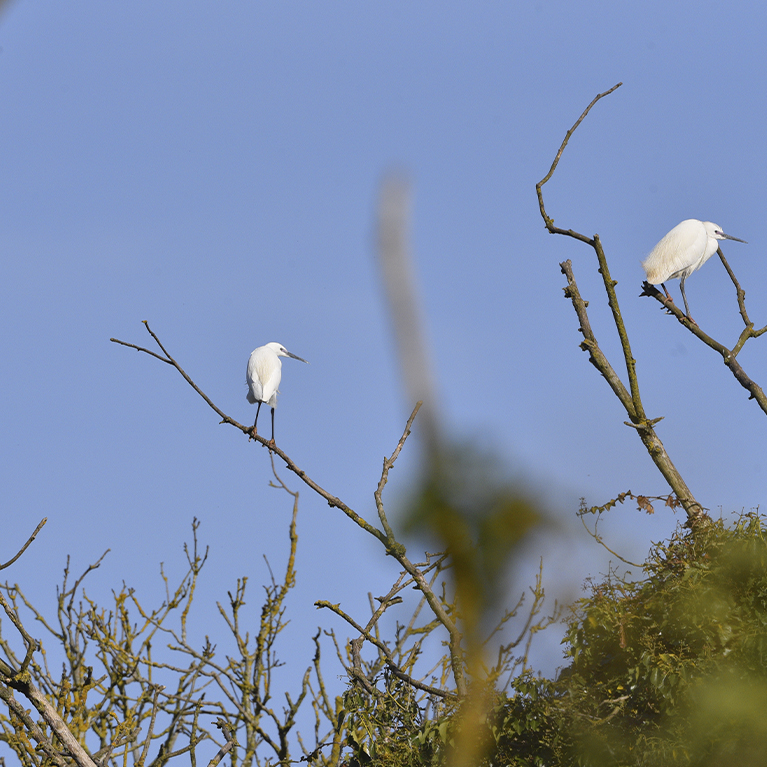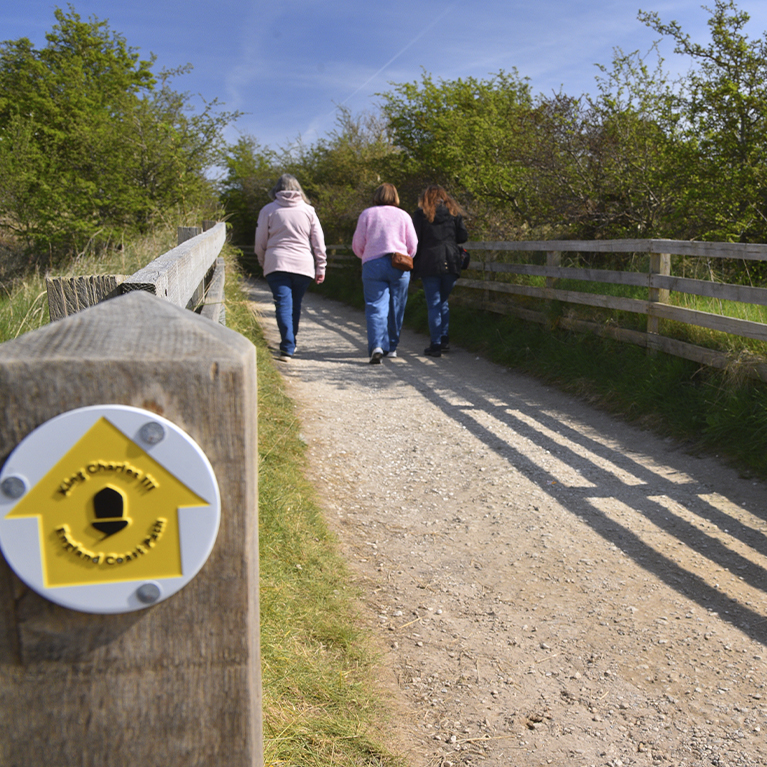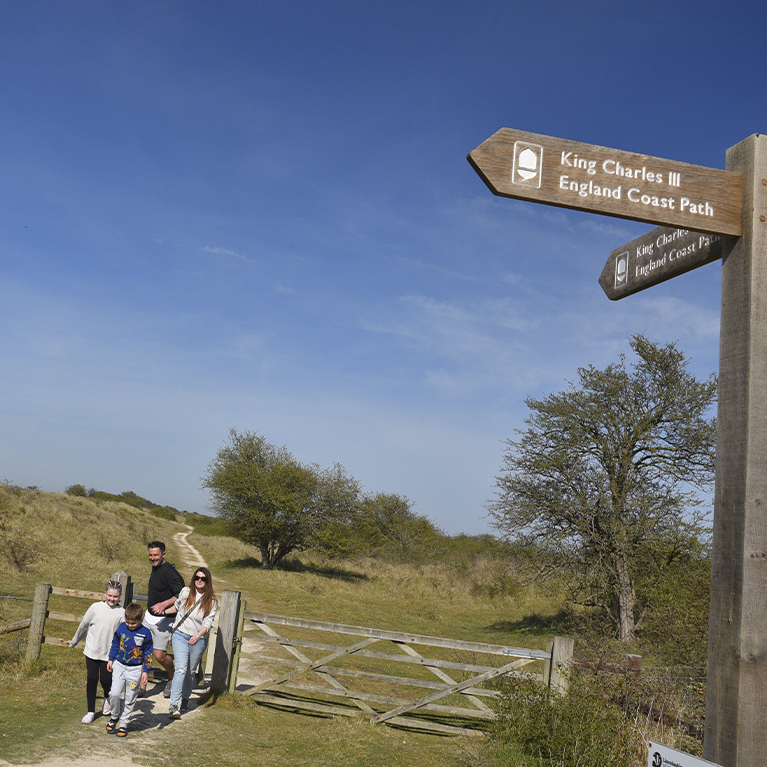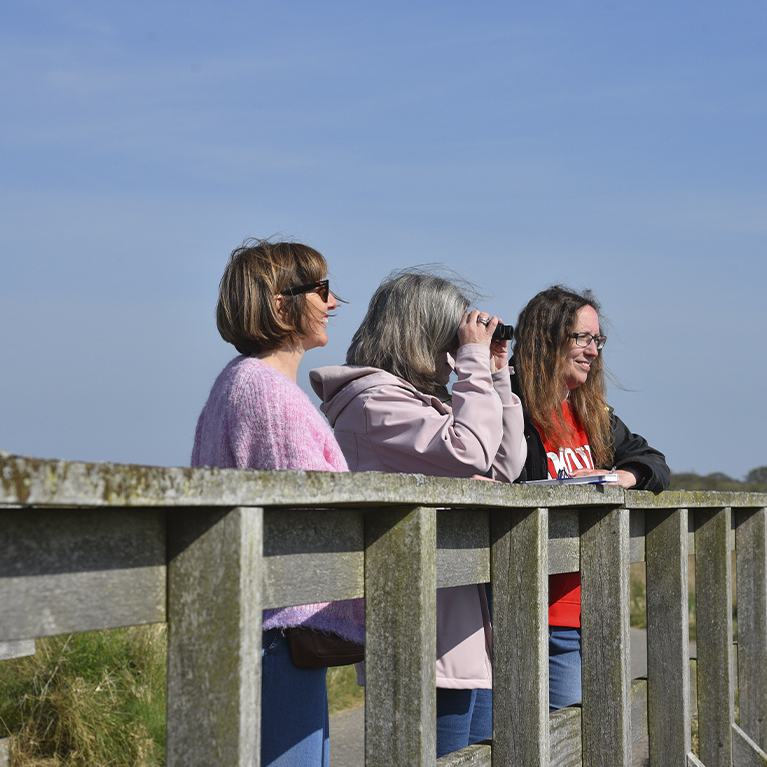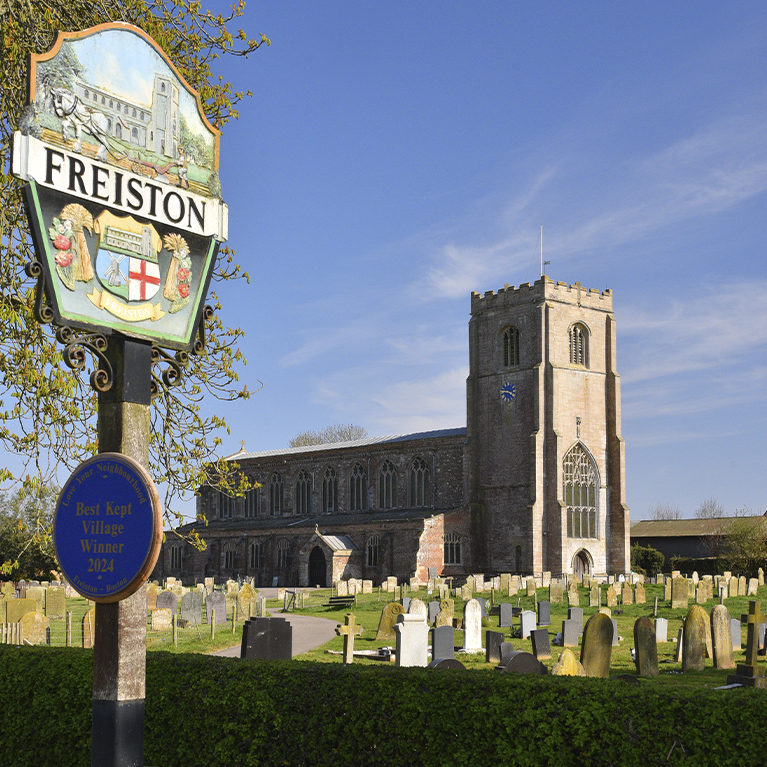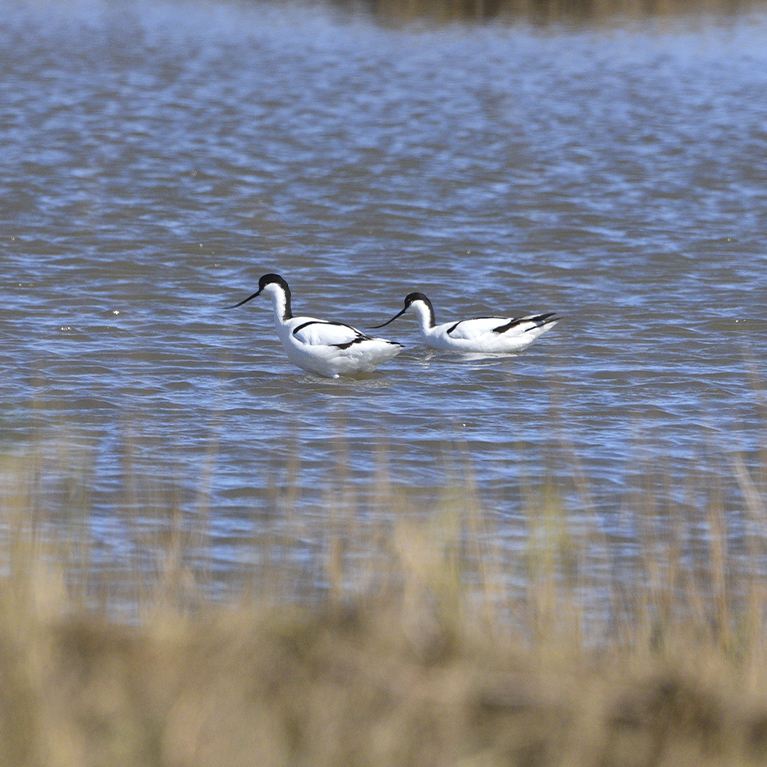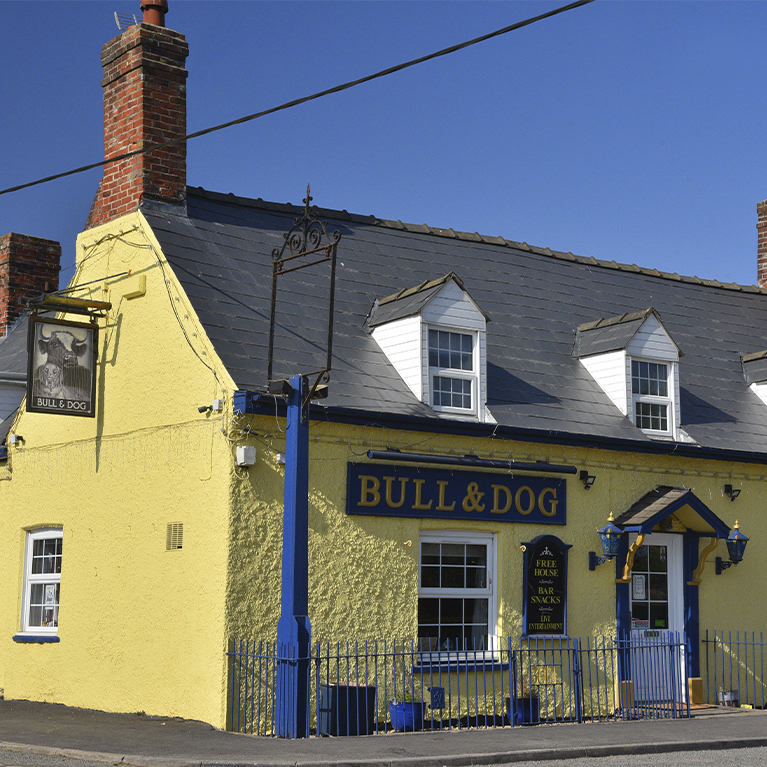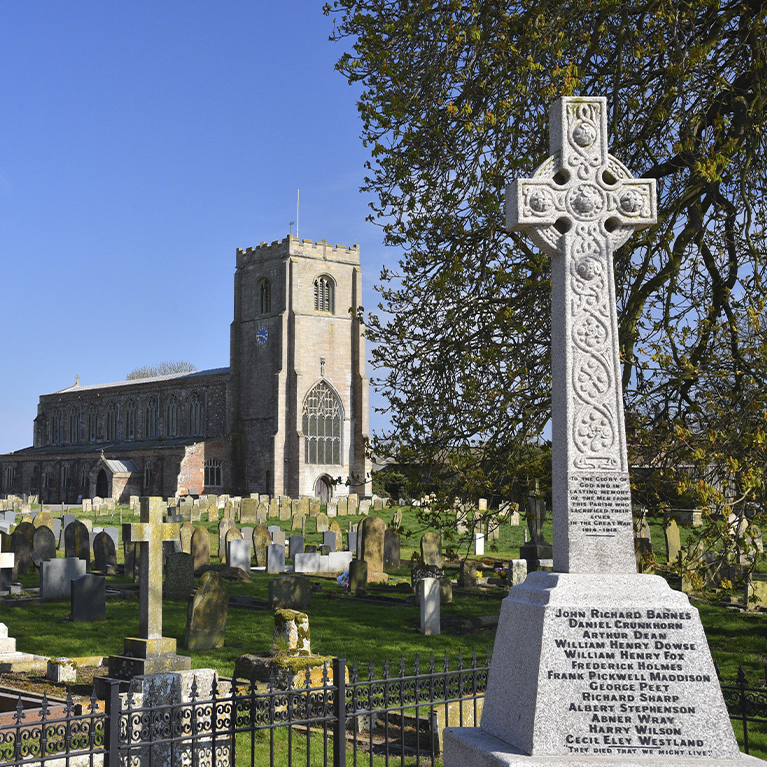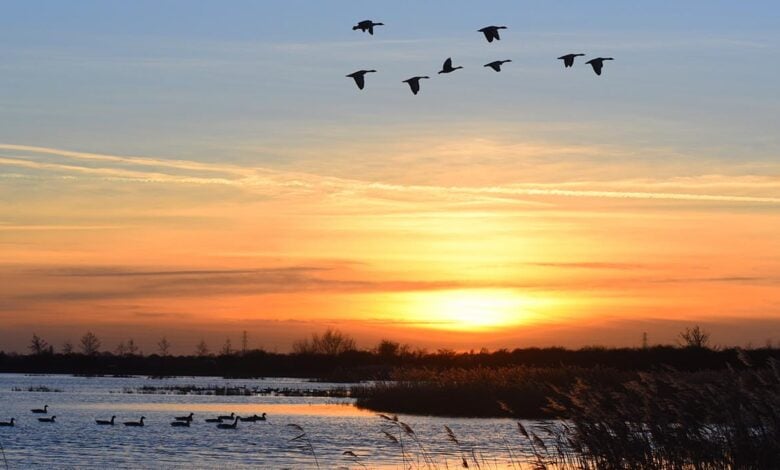(92.70km)
This is a quiet and remote walk which is largely dominated by sea embankments, with salt marsh towards the sea and flat farmland landward which is all reclaimed from the sea. From Sutton Bridge the coastal path heads along the River Nene towards the shores of the Wash once more. Along the way, you’ll pass two lighthouses – with the Guy’s Head lighthouse on this shore (and the Sir Peter Scott Lighthouse on the east shore). Spot Holbeach bombing range which the route passes, before heading far inland along the River Welland to Fosdyke Bridge. You'll explore parts of Boston and pass scenic views of Freiston Shore.
Starting point
A17, River Nene Cut
Spalding
PE12 9YN
Linked to Public Transport
Access to the trail is restricted between Friskney Eaudyke and Gibraltar Point due to the construction of a new bridge across the River Steeping, as the existing bridge is unsafe. Signs will mark where access ends at the River Steeping from Gibraltar Point.
For those starting at Friskney Eaudyke, a diversion route south is available connecting you with public rights of way further inland and towards the coast. Walkers aiming to go beyond this point should follow the diversion, as continuing north beyond the River Steeping is not possible.
Lincolnshire County Council is working to construct a new bridge which is expected to open in the Autumn of 2025. Until then there is no public access across the River Steeping. Apologies for any inconvenience caused.
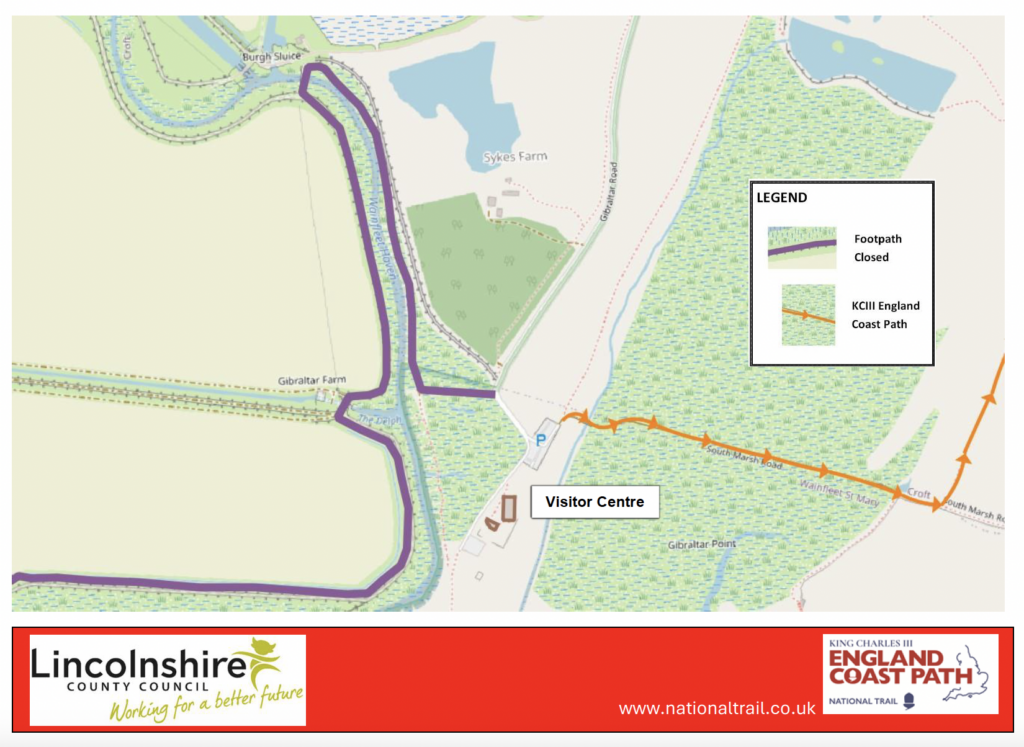
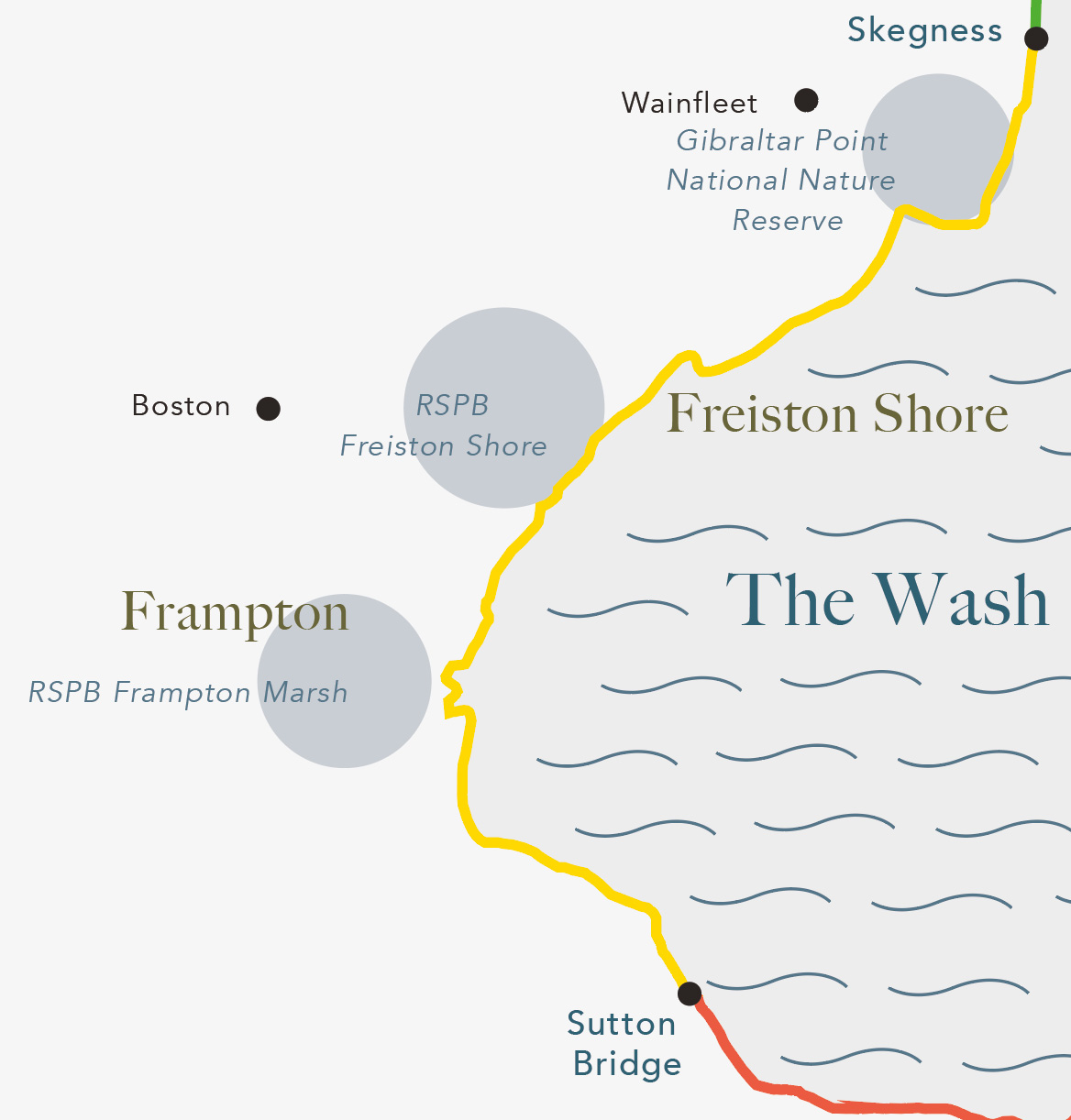
- Start at Sutton Bridge A17 Swingbridge (Crosskeys).
- The coastal path heads along the River Nene - past East Bank Farm, on your right.
- Keep following head until eventually on your left you will see Port Sutton Bridge.
- Continuing on straight, you will pass sluices and eventually a Hydraulic House, both to your left as you approach River Nene West Bank.
- On your right across the river you can see lighthouse cottages and a Lighthouse Farm.
- Continue on to Rach Guy’s Head Lighthouse ahead. Once you have passed the lighthouse you will reach begin to reach the mouth of the River Nene.
- Continue on this stretch of sea banks until you reach RAF Holbeach East bombing range. You will pass by Browns Farm on your left.
- Follow the path heading far inland along the River Welland to Fossdyke Bridge.
- From the former port at Fosdyke Bridge, the England Coast Path again returns to The Wash along the embankments. This section follows the Macmillan Way, and is an established route. Look out for Boston Stump.
- After endless embankments, you’ll arrive at The Haven, the estuary of the River Witham. There are lots of boats and warehouses to be seen in this segment.
- Follow the route into Boston via London Road, a road lined with numerous historic Georgian buildings. Here in the town you can visit Boston Stump and the market place.
- This final stretch along the Wash is again a remote walk. Once out of Boston, the route reaches Freiston Shore and its historic Plummer’s Hotel.
- Near Freiston Shore you might spot sections which were once reclaimed from the sea, but are now being allowed to flood.
highlights & information
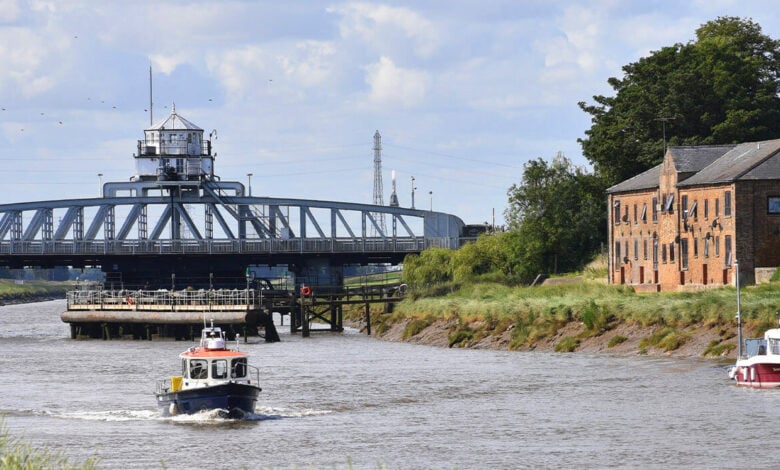
Cross Keys Bridge
The swing bridge at the village of Sutton Bridge was built in 1897 and is Grade II* listed. Crossing the River Nene it provides the only direct link between Lincolnshire and Norfolk. The bridge opens several times a week to allow ships through to the Port of Wisbech. Tolls were charged until 1903 and it originally took both road and rail, one carriageway for trains, the other for motor vehicles, it was converted to two-way traffic in 1960.
RSPB Frampton Marsh
RSPB Frampton Marsh is on the edge of The Wash, the UK’s largest and most important estuary for birds. The saltmarsh and fresh water wetland is managed for breeding, wintering and migrating birds. With its visitor centre, new café, hides, accessible trails and viewpoints Frampton Marsh is one of our Gateway birding sites. It is a wader honeypot and in winter there can be over 45,000 wetland birds. This rich source of food attracts birds of prey - the ‘Big Five’ of short eared owl, marsh harrier, hen harrier, peregrine and merlin are an achievable daily target to spot on a visit.
Boston
In 2030 Boston will celebrate the 400th anniversary of the founding of Boston Massachusetts and those from this small Lincolnshire town who intrepidly left their home town in 1630 to become some of the founders and leaders of the USA.
St Botolph’s Church
Nicknamed The Stump, St Botolph’s at Boston has one of the tallest towers in the country. In medieval times Boston was a prosperous town, England’s main wool exporting port. Only London paid more tax than Boston. There is a wealth of medieval buildings to discover, but don’t forget Maud Foster Mill dating from 1816, one of only a handful of working windmills in Lincolnshire.
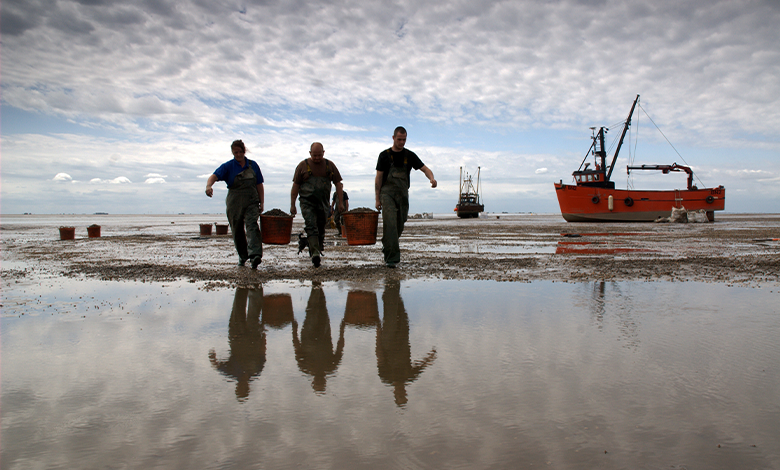
The Wash
Boat trips out into The Wash are possible from Boston. An extraordinary landscape where you can expect to see seals, sea birds and the Boston Fishing Fleet digging for cockles at low tide.
RSPB Freiston Shore
RSPB Freiston Shore was created as one of the UK’s largest managed coastal realignment schemes, when 66ha of farmland was converted into tidal saltmarsh. Godwits, knot, oyster catcher, wigeon, teal, lapwing and golden plover can be found here in their thousands.
Skegness
Skegness was just a village in 1873 when the Earl of Scarborough decided that the popularity of the seaside could only grow, he commissioned plans for a 'model watering place’ with wide, tree-lined streets on a grid system, promenades and a pier. When the Great Northern Railway Company commissioned John Hassall in 1908 to draw the ‘Skegness is So Bracing’ poster featuring the Jolly Fisherman, its success was secured. This most famous of adverts was to promote a special three-shilling excursion from Kings Cross.
Butlin's
Skegness continued to make tourism history when in 1921 a poor travelling showman, Billy Butlin, set up his hoop-la stalls here. By 1929 he had opened a large amusement park and by 1935 had built the Butlin’s Holiday Camp at Ingoldmells. Skegness is now a popular resort with a range of attractions and places to stay.
nearby
Wainfleet
Most notable is that since 1874 Wainfleet is home to fourth-generation family brewer Batemans Brewery. Based around a former corn mill, there is a visitor centre where you can see the whole beer making process. Wainfleet has a museum at Magdalen College and take a look at Barkham Street. In 1847 this street was built in a style similar to those in Southwark, London; to suddenly come across a ‘London style’ terrace in a small Lincolnshire town is quite unusual.
The King Charles III England Coast Path
When it is completed, the King Charles III England Coast Path will be the longest managed coastal walking route in the world. The 2,700 mile coast path (4,500km) will encircle the entire English coastline, taking in beaches, clifftops, cities, nature reserves and harbours through a range of unique landscapes and natural environments, with all the history and culture they have to offer. Sections of the King Charles III England Coast Path are already open, and further sections around the country such as in Lincolnshire will complete in the next few months.
nearby walking routes
things to do in the area
Battle of Britain Memorial Flight Visitor Centre (BBMF)
Chapel St Leonards – Coastal Country Park Walks
Gibraltar Point Nature Reserve
Humber to The Wash Cycle Route
Butlin’s Big Weekenders – Skegness
Lincolnshire Aviation Heritage Centre
Lincolnshire Coast Light Railway
Mablethorpe Seal Sanctuary and Wildlife Centre
Orchard Farm Equestrian Centre
Station Leisure & Learning Centre, Mablethorpe
The King Charles III England Coast Path
Chapel St Leonards to Skegness Promenade Cycling
Cleethorpes Seafront Birdwatching
Donna Nook National Nature Reserve Birdwatching
Dunes Leisure Mablethorpe Fairground
Huttoft Bank Pit Nature Reserve
Lincolnshire Coastal Country Park Birdwatching
Saltfleetby Theddlethorpe Dunes
Saltfleetby-Theddlethorpe Dunes Birdwatching
Sutton on Sea to Chapel St Leonards Promenade Cycling
The Ship Inn, Chapel St Leonards
Alford to the Coast Cycle Route
Dobson’s Mill & Heritage Centre Burgh le Marsh
Grimsby Revolution Cycle Route
Lincolnshire Wolds’ Challenge Cycle Route
Mumby to Hogsthorpe – Coastal Country Park Walks
Spilsby to Wainfleet All Saints Cycle Route
The Skegness and District Heritage Centre
